- SYDNEY, NSW
- MELBOURNE, VIC
- HOBART, TAS
- BRISBANE, QLD
- ADELAIDE, SA
- CANBERRA, ACT

European countries to demand special travel permits from Australians from 2024

How will ETIAS affect my travel plans?

How do I get my ETIAS authorisation?
Do i have to apply every time i want to travel to europe.

Is it free to apply?
What about the uk, send your stories to [email protected].
Auto news: Cooling demand for electric cars sees Fiat make major change.
Top Stories

Rescue crews continue to search rubble for woman missing after explosion

Ref of ultra-violent Cup clash later invented red cards

Will Russian athletes compete at Paris 2024?

Sydney inundated with a month's worth of rain in 24 hours
Local news:
Get 7NEWS newsletters in your inbox
Major update coming to european travel for australians as etias launch date pushed back to 2025.

The Royal biography causing controversy
Australian travellers heading to Europe next year will no longer need to worry about having to adhere to the continent’s new entry system .
The European Travel Information and Authorisation System (ETIAS) was initially flagged to begin in 2024, affecting about 1.4 billion people from 60 countries.
However, it has since been revealed the system will not come into play until 2025.
The ETIAS, which works as a kind of visa waiver process, was designed to modernise the immigration system and combat illegal entry into Europe.
The exact date it will be introduced in 2025 is not yet known.
Australians did not previously need any such documents for a short stay in the European countries affected by the change.

But the ETIAS will allow travellers from visa-exempt countries, including Australia and the UK - which lost freedom of movement following Brexit - to enter the 30 Schengen Area countries in Europe for up to 90 days within a 180-day period.
The ETIAS is valid for three years regardless of age, or until the traveller’s passport expires.
Smartraveller , the Australian government’s travel advice service, states once the changes come into effect, Australians will need to apply through the ETIAS to enter 30 European countries.
“The ETIAS is expected to start in mid-2025, but this will depend on the new entry/exit system being operational,” Smartraveller says.
“You won’t need an ETIAS for EU countries who aren’t taking part in the program.”
A successful grant through ETIAS does not, however, guarantee entry into a European country.
“When you arrive, a border guard will ask to see your passport and other documents and verify that you meet the entry conditions,” the European Union website states.
The application process will require the same general personal information as a visa waiver.
But it will also ask about criminal history, and plans to visit war and conflict zones.
Australian Medical Association calls for urgent overhaul of the country's healthcare system
The latest travel advice for Australians wanting to head to Europe
By Dilvin Yasa | 4 years ago
Dreaming of a northern summer on Italy's Amalfi Coast or cruising Norway's fjords? Whether it was still in the research stages, or you'd already booked and paid for your flights and accommodation, today's announcement by the Australian Government advising all Australians to reconsider their need for non-essential overseas travel has thrown a bit of a spanner in the works. What does 'reconsider' really mean and how does it affect your holiday plans? If only things were black and white…
Can Australians still travel to Europe?
On March 13, our government announced they have lifted the travel advisory for all overseas travel to a level three: 'Reconsider your need to travel'. On Smartraveller.gov.au, they further elaborate that regardless of your destination, age or health, if your overseas travel is not essential, consider carefully whether now is the right time to do so.

They add they have issued this advice for two principal reasons: Australians may be at higher risk of contracting COVID-19 – particularly during flights and in crowded airports. If illness strikes, health care in countries may not be at the level we enjoy back home. Secondly, there is always the chance that re-entry into Australia may not be so smooth. Travel plans may be disrupted and we may be placed in quarantine and therefore unable to return to our families and jobs for a number of weeks.
Does this level three advisory mean you can't book the next flight out of Oz and head straight to the sunny shores of Malta or Spain? No, you can still go but your holiday could very well become a case of 'be careful what you wish for'.
Is Europe safe?
If we look at the statistics as of 13 March 2020, things are rather grim. Of the 10 countries that have been hardest hit by COVID-19, six of them are located in Europe. Italy – currently in complete lockdown – has over 15,000 confirmed cases with over 800 fatalities thus far, while the virus is spreading quickly in Spain.

On 9 March, confirmed cases stood at 1,000 but this figure rose sharply to more than 3,146 on 12 March. Germany and France have over 3,000 confirmed cases each, Switzerland had hit 868 by 12 March and Norway has also seen skyrocketing figures arriving quickly at its current confirmed rate of 800. Montenegro remains the only European country which is currently COVID-19-free.
What's open?
Perhaps the most disappointing part of going ahead with a European vacation is just how little remains open. Every country is different of course and bans and closure announcement change daily but to give you a taste of what travellers can expect, many of Spain's state-run museums such as El Prado and the Reina Sofia have been closed temporarily, while all indoor cultural institutions and leisure facilities in Denmark will also be closed for at least a couple of weeks from 13 March. During this time, bars and clubs will also be encouraged to stay closed and any gathers involving more than 100 people indoors will also be called off.

In Italy where the countrywide lockdown is underway, not only are major tourist attractions such as the Colosseum, Pompeii and the Uffizi Galleries shut, the Italian government has also ordered the closure of all retailers with the exception of pharmacies and food shops. This means no cafes, or restaurants.
Sports events are also affected; in Greece, the government has announced all professional sports events for the next two weeks will be played without spectators and in Spain, the Barcelona Marathon has been moved from 15 March to 25 October.
What precautions can I take?
It is recommended older Australians, those with compromised immune systems and those with underlying health conditions should avoid overseas travel for now. While it would be wise for everyone else to avoid Italy and other countries with high rates of confirmed cases (see above), there are other options such as Montenegro, Turkey and Cyprus where the rates are still relatively low.
Although it should be stated once more that it is against the advice of the Department of Foreign Affairs and Trade (DFAT), those wishing to continue with their European adventure should take the following health precautions set out by the World Health Organisation (WHO):
- Wash hands frequently with soap and water. If soap and water is not available to you, use hand sanitiser with a high alcohol content.
- Keep your distance (at least a metre) from anyone who appears to be ill, particularly if they are sneezing or coughing.
- Avoid touching eyes, mouth and nose.
- Practice respiratory hygiene. This means covering your mouth and nose when you cough or sneeze, and thoughtfully dispose of tissues once you're finished with them.
- Contact medical authorities immediately if you begin to feel ill.
Will my travel insurance cover me?
Every provider is different but if you're trying to purchase travel insurance now, it's highly unlikely you'll be covered for any coronavirus-related cancellations or medical expenses. Up until recently you could purchase Covermore's Cancel For Any Reason policy however the provider has temporarily suspended sales of the product.
If you purchased your policy while the COVID-19 was already a known risk, most policies will jump on their 'known events' clause and you will not be covered. That said, some will cover medical costs in relation to pandemics and epidemics but will draw the line at assisting with cancellation costs.
If DFAT has issues a 'Do not travel' warning and you travel to that destination anyway, your travel insurance will not cover you but that doesn't mean lower-level warnings should be disregarded. Some policies can still become void once that advice becomes official.
What happens if I cancel?
If there's any silver lining to found in such a situation, it's this: while most major airlines are not offering refunds for cancellations (Qantas only considers giving refunds when a level 4 DO NOT TRAVEL warning is issued) many airlines and tour operators are increasingly changing their policies to allow their customers to change travel dates without applying penalties.
Booked a trip with Intrepid? The tour operator has changed its cancellation policies for all new and existing bookings, offering deposit transfers or cash refunds depending on booking and payment dates. Trafalgar and Insight Vacations are also waiving their cancellation policy up to 30 days prior to departure for those with existing bookings departing on or after April 1.
Hotels and cruise lines have similarly altered their cancellation policies although each one varies with its terms and conditions. Call your providers, be it your travel insurance provider, cruise line, airline or hotel. Circumstances may change day by day and they'll do their best to keep you in the loop.
As always, consult Smartraveller.gov.au to stay up to day with travel advisories before you travel.
- Travel News
- Travel Safety
- Travel Planning
- Travel Tips
- Coronavirus
Property News: Igloos are rare in Aussie real estate, but this high-end property has one for a purpose that will stun.

Travel must-haves to pack for your next international trip

Sydney named in top cities for foodie travellers

Spanish tourist town bans sex dolls for stag parties

Don't miss a thing!
Our top headlines in style, culture, and more, in your inbox, daily, we respect your privacy. all data captured will be used in accordance with our privacy policy, how australians can travel in style this euro summer.
From updated visa requirements to Euro pricing consideration — and even the best Premium Economy seating, courtesy of Emirates’ new luxury offering. By Hayley Peppin

EACH YEAR, thousands of sun-chasing Aussies abandon our brutal winter for a European summer. Or, as I like to call it Aperol season. But walks along the Seine, island-hopping in Croatia and those rite of passage visits to Harrods might look a little differently this time compared with pre-pandemic travels . The classic international holiday has not only drastically increased in price — our hunger for travel has never been greater since deprivation— but sees a few new visitor rules, such as the ETI’s visa, come into effect.
On the plus side, long haul flights have become that much more comfortable with the world’s most luxurious premium cabins being launched in Australia, courtesy of Emirates. The swish new offering is even touted as on par with business class in “some other airlines,” so you can travel in style without compromising on that clifftop stay at Caruso, A Belmond Hotel on the Amalfi Coast. BAZAAR breaks down all the Euro travel advice to ensure you live out your Euro fantasies with zero disruption.
Related : How to travel again
How expensive is a European summer holiday in 2023?
The travel advice is simple: don’t procrastinate, book now. European summer holidays have never been more expensive for Australians than in 2023, with fares almost 50 per cent higher than the same period last year — and increasing. The average price for a return economy flight from Australia to top Euro destinations like London or Paris has skyrocketed to $2,571, according to flight comparison website Kayak.com.au. For perspective, air fares are now 63 per cent above pre-pandemic flights.
The Guardian reports that the hefty 2023 increase shouldn’t come as a surprise — with most carriers hoping to financially recover from COVID-19 related losses while mitigating high fuel costs. And with our lust for travel at an all-time high, they’re able to confidently set such air fares.

“Sadly what has happened since Covid is that travel has gone from being something very democratic that just about anyone earning even a modest salary could afford to being a plaything of the elite or for people paying huge amounts of money just to see loved ones,” David Beirman, an adjunct fellow at the University of Technology Sydney, told The Guardian.
He continued: “Maybe by 2024 or 2025 people will be a bit more choosy, less eager to travel, and prices will come down but at the moment it’s very much a sellers market and airlines are, rightfully or wrongfully, taking advantage of that.”
As for accomodation, hotels in Europe have become that much more expensive this year as well due to soaring energy prices. Between May 2019 and May 2022, the average hotel room rate rose 23 per cent in Italy, 21 per cent in Ireland, 17 per cent in Spain and 12 per cent in the UK, reports Traveller . And it’s expected to increase even more this summer. Australian travel industry experts anticipate a 25 per cent increase in hotel prices in the top summer destinations of Greece and Croatia in 2023 with tour operators planning trips around Turkey facing between 20 percent to nearly 50 per cent increase in room rates, in euros.
Related : Five communication tips for your next excursion to Paris
How to have an affordable European holiday in 2023
If you’ve got the Euro travel bug but are on a budget, don’t worry you can still have your “revenge holiday” but with a few considerations. Firstly, be mindful of your arrival destination as while Lisbon may average a costly return ticket of $2,963 during peak summer — Frankfurt is a more affordable. According to the Kayak booking data, the German city is the cheapest European city to fly into from Australia with an average return fare of $2,371 during the June to September period.

More generally, travellers on a budget should consider visiting lesser-known cities and countries than some of the notoriously expensive tourist hotspots. It’s advised they also book a solid itinerary prior to departure, rather than the classic Aussie mentality of ‘winging it’ upon arrival. Time Out recommends holidaymakers check out Kraków, Poland; Riga, Latvia; Český Krumlov, Czech Republic; Bucharest, Romania; Belgrade, Serbia; Kaunas, Lithuania; Zagreb, Croatia; Argos, Greece; Marsalforn, Malta; and Sofia, Bulgaria as some of the most interesting, delicious and affordable locations on the Continent this year.
But if your heart (and tummy) desire Eiffel Tower views or pasta alla carbonara, perhaps consider forfeiting a Euro summer altogether for the off-peak ’shoulder season.’ The more affordable period sits on the cusp of peak season, either before summer during April or May — or after it in September or early October. Prices tend to rise during school breaks and summer holidays. As travel blogger Jen of The Soloist wrote to an Instagram post : “One of the absolute BEST times to travel is during shoulder season anyways!!”
She continued: “‘Shoulder season’ is an off-peak period when a destination has less crowds, lower prices, and milder weather,” she continued. “It’s a great way to get a more authentic experience, while spending less for the same fabulous hotel rooms!”
You can also expect airfare prices to lower during shoulder season, with the biggest drops at some of the most popular destinations. This could mean a potential upgrade from your usual flight cabin, such as Emirates’ new Premium Economy.
Related : The only way to see the Amalfi Coast next summer

How to beat dry skin on the flight
La Prairie’s Art of Beauty Lounge — a global first — was created for just this reason, so if you’re travelling from Sydney International Airport, you’re in luck. Located to the right of your entrance to the luxury beauty & cosmetics section of Heinemann Duty Free, the lounge was established to not just tend to any flight-related skincare woes, but also to deliver the ultimate pre-flight relaxation experience. The unique luxury spa service, or oasis in the form of a private pod, is deigned to fully prepare travellers skin for changes in light, temperature, oxygen and differing time zones. With a welcome lounge and two private treatment rooms, guests can enjoy 45 minutes of luxury, before boarding their long haul flight. Book your treatment in advance here . Your skin will thank you.

Best premium economy seats
If you’re dreaming of business class but still need to save on spending money, Emirates may be your happy travel medium. Long known as one of the world’s best carriers, Emirates has recently launched its luxurious Premium Economy seating following an eight-year multi-million-dollar refurbishment. On April 19, the airline introduced its daily Airbus A380 Premium Economy services from Melbourne to Dubai, making it the the fifth city on the Emirates’ network to offer the upgraded economy seating options. This follows successful Sydney’s debut last December.
Now, if you’re wondering whether there’s much of a difference between Economy and Premium Economy, there is. Emirates is comparing the new offering to business class cabins of the late ’80s and early ’90s, with its 56 Premium Economy plush leather seats unusually sitting at the front of the plane. It’s laid out in an ergonomic and spacious 2-4-2 configuration, meaning couples won’t have that awkward third wheel (it happens) — and families can comfortably stretch out in the aisle row. There’s almost a metre of legroom, in-seat charging points, a generous 43-centimetre entertainment screen, and a walnut wood-finished side cocktail table; much like the sophisticated business class aesthetic.

As for on-flight dining, let’s just say you won’t want to pre-purchase anything to take on board. Passengers are treated to champagne on arrival (only the best way to start a trip, right?), and nthoughtfully-curated meals using seasonal ingredients served on Royal Doulton china tableware with stainless-steel cutlery. There’s also a dedicated Premium Economy crew with three bathrooms for the 56-seat cabin, so you won’t have to line up during the evening.
Premium economy passengers will also get priority boarding, plus a generous 35 kilograms of checked luggage. Since tickets went on sale on June 1, 2022, Emirates says there’s been “significant demand” for the new cabin, exceeding expectations and forecast. In terms of Premium Economy pricing, you’re looking at around $2,700 each way from London via Dubai, with “shoulder-season” tickets around $2000 each way. It’s definitely a taste of flying luxury at a fraction of the business cost.
“This is an exciting period for Emirates in Australia, with Melbourne and Sydney sitting at the forefront of Emirates biggest investment in cabin redesign to date,” Barry Brown, Divisional Vice President Australasia at Emirates, said.
“We have a strong commitment to Australia, as one of our most important markets on our global network. Alongside continued increase of operations as we make a strong rebound, we are committed to offering Australians more choice in how they travel, and look forward to offering travellers between Melbourne an exceptional new experience.”
Bookings can be made on emirates.com , the Emirates App, or via both online and offline travel agents.
Related : Here’s how you can fight jet lag naturally

What is the ETIAS visa?
Australians travelling to France, Denmark or even Croatia (one of the latest countries to join the Schengen Area) will soon need to apply for a visa waiver program. Coming into effect next year, the European Travel Information and Authorisation System or ETIAS will require Australia and more than 63 other non-European Union countries to apply online for pre-screening. For clarity, the ETIAs is not a visa — but intended to waive the requirement for it. The new mandatory pre-travel authorisation is a largely automated IT system created to identify any security risks, much like the eligibility of travellers heading into the US.
Travellers can access the ETIAS application online, which is said to take around 10 minutes to fill out. It’ll ask applicants to fill out standard contact details, including full name, address, passport information, as well as the first EU country they intend to visit. There will also be questions about criminal history, drug use, human trafficking and previous European travels. The link will be made available next year, with the application to cost $11 for each Australian applicant aged between 18 and 70. The ETIAs is permissible up to 90 days, with longer travel in the Schengen Area requiring Schengen Visa.
Related : The Dorchester London gets a royally good makeover ahead of the coronation

Gwyneth Paltrow’s guide to New York

Where to eat, drink and shop in Paris

See inside the Seoul launch of Rimowa’s latest collection

BOSS | Samsonite is here to elevate your travel experience

The best vintage stores in Paris according to a luxury buyer

Live out your ‘Ripley’ dreams with Lexus’ new luxury yacht
- Travel Insurance
The journalists on the editorial team at Forbes Advisor Australia base their research and opinions on objective, independent information-gathering.
When covering investment and personal finance stories, we aim to inform our readers rather than recommend specific financial product or asset classes. While we may highlight certain positives of a financial product or asset class, there is no guarantee that readers will benefit from the product or investment approach and may, in fact, make a loss if they acquire the product or adopt the approach.
To the extent any recommendations or statements of opinion or fact made in a story may constitute financial advice, they constitute general information and not personal financial advice in any form. As such, any recommendations or statements do not take into account the financial circumstances, investment objectives, tax implications, or any specific requirements of readers.
Readers of our stories should not act on any recommendation without first taking appropriate steps to verify the information in the stories consulting their independent financial adviser in order to ascertain whether the recommendation (if any) is appropriate, having regard to their investment objectives, financial situation and particular needs. Providing access to our stories should not be construed as investment advice or a solicitation to buy or sell any security or product, or to engage in or refrain from engaging in any transaction by Forbes Advisor Australia. In comparing various financial products and services, we are unable to compare every provider in the market so our rankings do not constitute a comprehensive review of a particular sector. While we do go to great lengths to ensure our ranking criteria matches the concerns of consumers, we cannot guarantee that every relevant feature of a financial product will be reviewed. We make every effort to provide accurate and up-to-date information. However, Forbes Advisor Australia cannot guarantee the accuracy, completeness or timeliness of this website. Forbes Advisor Australia accepts no responsibility to update any person regarding any inaccuracy, omission or change in information in our stories or any other information made available to a person, nor any obligation to furnish the person with any further information.
The New Travel Document Aussies Will Need To Visit Europe
Published: Apr 2, 2024, 1:00pm
Table of Contents
What’s the purpose of an etias travel authorisation, which countries require etias authorisations, what aussies need to know about the new europe visa, people who need etias authorisations, frequently asked questions (faqs).
The days of boarding a long-haul flight to the Continent with simply your passport are numbered. As of next year, 1.4 billion people—including Australians—will need a special travel authorisation to enter the Schengen area of Europe, as part of an international effort to increase security.
The new rules will be rolled out by the European Travel Information and Authorisation System (ETIAS) in 2025, with the exact date to be confirmed. The program was approved in 2016 and, after being delayed in 2022 due to the pandemic and insufficient infrastructure to support the program, was slated to start this year. However, it has been delayed once again and is now due to be launched next year.
In October, European Commission spokesperson for home affairs, Anitta Hipper, did not give a reason for yet another delay. She said since the program isn’t yet operational, no applications are being accepted.
Once ETIAS kicks off, travellers coming from once visa-exempt countries—including Australian, American and British tourists—will be required to apply for the travel authorisation and pay a small fee. It applies to people who plan to stay in participating countries for fewer than 90 days, and is valid for three years.
Featured Partners
Fast Cover Travel Insurance
On Fast Cover’s Secure Website
Medical cover
Unlimited, 24/7 Emergency Assistance
Cancellations
Unlimited, (Trip Disruption $50,000)
Key Features
25-Day Cooling Off Period, Australian Based Call Centre, 4.6 Star Product Review Rating
Cover-More Travel Insurance

On Cover-more’s secure website
Unlimited, with a $2000 limit to dental
Yes, amount chosen by customer
Southern Cross Travel Insurance
Medical Cover
Unlimited, with a $2000 limit on dental
$2,500 with option to increase to unlimited
The new requirements are being established to help “identify security, irregular migration or high epidemic risks posed by visa-exempt visitors,” according to the European Commission website.
There are 30 mostly European countries that will require travel authorisations once ETIAS kicks off. You will have to show your passport, ETIAS documentation and any other entry requirements to border officers when entering these countries.
The ETIAS authorisation is only good for short-term stays of 90 days or fewer; it is not a work visa. The ETIAS information is linked to your passport, so if you have to replace your passport for any reason, you’ll also need a new ETIAS travel authorisation. (Your travel insurance company should be able to assist with a lost passport).
You will need an ETIAS Authorisation if any of the following apply to you:
- You’re not a European Union national
- You’re a citizen of any country, including Australia, whose nationals don’t currently need a visa for a short-term stay in a European Union country.
- You don’t have a residence permit or card issued by any of the European countries that require ETIAS.
Some travellers may be exempted from the requirement for an ETIAS travel authorisation, so check before you apply.
How to Apply for ETIAS
Australians traveling to Europe can apply on the ETIAS website’s application section once it becomes operational. For notifications in the meantime, you can sign up for emails at the website.
Cost of an ETIAS Travel Authorisation
As of April 2024, the ETIAS application fee is €7. This is equal to roughly $11 Australian dollars with the current Euro to AUD conversion . However, it’s free for anyone under the age of 18 or over the age of 70.
For How Long is the ETIAS Valid?
The ETIAS authorisation is valid for three years once being granted. You can only travel in a participating country for 90 days within any 180-day period. Whenever you travel to participating countries, your ETIAS authorisation must be valid for the entire duration of the stay.
Will Aussies have to pay a fee to holiday in Europe from 2024?
Not yet as the ETIAS travel authorisation has been delayed until 2025. However, from next year, assuming the perennially delayed launch happens, Australians will need to pay a fee to apply for an ETIAS in order to visit countries in the European Union. The application fee is expected to be around $11 AUD.
What does Europe's new entry rules mean for Aussies?
As of 2025, the European Travel Information and Authorisation System (ETIAS) is rolling out a new requirement for international travellers, including Australians. It simply means that Australians can no longer travel to certain European countries with only their passport, and, instead, they will be required to apply for an ETIAS in order to travel to participating countries for 90 days within an 180-day period.
Do I need to apply for ETIAS if I have a European passport as an Australian?
If you are an Australian citizen who also holds a European passport, you will not be required to apply for a ETIAS travel authorisation when travelling through the EU on your European passport. If you are travelling on your Australian passport, however, you will be required to apply for ETIAS.
Can Australian citizens enter the EU?
Yes, Australian citizens can enter countries within the European Union. At present, Australians do not require any additional visas to enter EU countries as long as they are only visiting for a holiday and a certain period of time (Australians still need work visas or study permits if visiting the countries for these purposes).
However, as of 2025, Australians will be required to hold an additional document in order to travel to certain European countries. This document is known as an ETIAS, which is a new travel authorisation document coming into effect in an effort to better enforce international security.
Do I have to apply for a new ETIAS every time I enter a new country in Europe?
No, there are not separate travel authorisations for different countries that are involved in the ETIAS agreement. Instead, you will apply for one authorisation that will allow you to travel to and between the 30 participating countries.
Your ETIAS is valid for three years, so if you leave Europe and return within three years, you will still be able to use your pre-existing ETIAS travel authorisation as long as it is still valid for the entirety of your visit.
What countries will Australians need a ETIAS travel authorisation for?
The countries which Australians will need an ETIAS for are:
- Czech Republic
- Liechtenstein
- Netherlands
- Switzerland
- Best Comprehensive Travel Insurance
- Best Seniors Travel Insurance
- Best Domestic Travel Insurance
- Best Cruise Travel Insurance
- Best Family Travel Insurance
- Travel Insurance Cost
- Pregnancy Travel Insurance Guide
- Travel Insurance Cancellation Cover
- Travel Insurance For Bali
- Travel Insurance For Fiji
- Travel Insurance For The USA
- Travel Insurance For Thailand
- Travel Insurance For New Zealand
- Travel Insurance For Japan
- Travel Insurance For Europe
- Travel Insurance For Singapore
- Travel Insurance For Indonesia
- Travel Insurance For Vietnam
- Travel Insurance For Canada
- Travel Insurance For South Africa
- Cover-More Travel Insurance Review
- Fast Cover Travel Insurance Review
- Travel Insurance Saver Review
- Allianz Comprehensive Travel Insurance Review
- 1Cover Comprehensive Travel Insurance Review
- Australia Post Comprehensive Travel Insurance Review
- Tick Travel Insurance Review
More from
Best student travel insurance, travel insurance and covid: are you covered, top travel insurance tips for australians, our pick of the best comprehensive travel insurance providers in australia, do frequent flyer points expire, travel insurance for canada: what you need to know before you go.
Sophie Venz is an experienced editor and features reporter, and has previously worked in the small business and start-up reporting space. Previously the Associate Editor of SmartCompany, Sophie has worked closely with finance experts and columnists around Australia and internationally.
- Boating Holidays
- Asia & Pacific
- Australia & New Zealand
- Central America
- Indonesia & Indian Ocean
- Middle East
- Scandinavia
- South America
- Business Travel
- Culinary Travel
- Wellness Travel
- Golf Travel
- Travel Style
- Travel Gear
- Travel Fashion
- Real Estate
- Destination Weddings
- Fishing Holidays
- Tricks & Hacks
- Travel News
- #WHERETONEXT
- Read All the Issues
- Working with DRIFT Travel
- Submit Your Photos to DRIFT Travel
- DRIFT Travel Magazine Media Kit

The Aussie Traveller’s Guide To Experiencing Europe

As an Australian traveller, experiencing Europe can be a dream come true. From the breathtaking architecture of Prague to the vibrant culture of Barcelona, there is no shortage of fantastic destinations to explore. But with so many options, it can be overwhelming to plan your trip.
By branching out beyond traditional tourist hotspots, Aussie travellers can discover hidden gems and create unforgettable memories in Europe. And by following these tips, Australians can have a smooth and memorable journey through Europe:
Organise Your Currency First
Planning a trip to Europe can be exciting and overwhelming, but one crucial step before setting off is organising your currency. While some countries in Europe may accept the Australian Dollar (AUD), it is important to note that most transactions will require Euros (EUR). It is recommended to exchange AUD for EUR before arriving, as conversion rates and fees at airports or foreign ATMs can often be more expensive.
These fees can also add up quickly if using credit or debit cards for purchases, so consider getting some cash in EUR beforehand to avoid excessive charges. Overall, organising your currency in advance can save time and help ensure a smooth and hassle-free trip through Europe. Along with stocking up on Euros, remember to have multiple methods of payment available such as credit or debit cards as well as travel cards for added security.
Purchase a Eurail Pass
For Aussie travellers heading to Europe, purchasing a Eurail Pass is a smart decision. Not only does it allow you to travel on almost all trains in Europe, it also offers convenience and flexibility with its range of passes and options. Plus, with discounts for youth and seniors, families have the opportunity to save money on their travels.
And even if you don’t intend on taking many trains, the pass can still prove useful as it grants discounts on ferries, buses, and other transportation options. So before you start booking individual train tickets or rental cars for your trip to Europe, consider the benefits of a Eurail Pass. It just might make all the difference in your journey.
Research the Visa Requirements for Each Country You Plan on Visiting
When planning international travel, it is important to do your research on visa requirements for each country you plan on visiting. As an Australian citizen, visiting Europe will typically require a Schengen visa. However, not all European countries are part of the Schengen agreement , so be sure to check the requirements for any non-Schengen countries on your itinerary as well.
It is also important to note that while a Schengen visa allows travel throughout the region within a certain time frame, certain types of visas may only grant access to specific countries or specific purposes such as education or work. Additionally, be sure to check and adhere to any entry requirements related to COVID-19, as these can vary greatly depending on the country and could potentially affect your ability to enter.
Pack Appropriate Clothing
As any seasoned traveller knows, it’s important to be prepared for your destination’s climate and cultural norms. This becomes even more critical when travelling to Europe, as many attractions have strict dress codes in place. This means that shorts and tank tops may not be allowed inside churches or museums, so it’s best to pack clothing that covers your shoulders and knees.
In addition, some religious sites require visitors to cover their heads, so consider bringing a hat or scarf as well. While Europeans generally have a more fashion-forward sense of style, it’s still important to avoid overly revealing clothing in public places out of respect for local customs.
By packing appropriate clothing, you’ll not only be able to enjoy all the sites Europe has to offer, but also show appreciation for the unique cultures and traditions found there.
Download Some Free Translation Apps
As an Australian traveller heading to Europe, it’s important to consider the language barrier you may encounter. While many people in tourist hotspots may speak some English, venturing off the beaten path could leave you struggling to communicate. One solution is to download some free translation apps on your phone prior to your trip.
Popular options include Google Translate and iTranslate , both of which allow you to translate words or phrases in over 100 languages. These apps also have features such as camera translation and conversation mode, allowing for easy communication in real time. So before packing your bags and jetting off across the globe, don’t forget to add these helpful tools to your travel arsenal.
Interact With Locals in Addition to Seeing Major Tourist Attractions
As an Australian travelling to Europe, you may be tempted to check off all the major tourist attractions on your list. But don’t forget to also engage with locals during your travels. Immersing yourself in the community can give you a deeper understanding of the culture and customs of your destination.
Consider staying in a homestay or Airbnb instead of a hotel, joining a walking tour led by a local guide, or attending community events and festivals. Local interactions can also provide unique experiences that aren’t available through standard tourism – perhaps dining at an authentic neighbourhood eatery or learning how to make traditional handicrafts from a resident expert.
So while seeing famous landmarks is certainly worthwhile, remember to make connections with locals as well for a truly fulfilling trip.
Australia may be a long way from Europe, but the continent offers Aussie travellers the opportunity to immerse themselves in unique cultures and breathtaking landscapes. To truly experience the best of what Europe has to offer, it’s worth considering a multi-country trip rather than focusing on just one destination.
Travel by rail or budget airline to visit must-see cities like London, Paris, and Rome, while also adding stops in smaller towns that are lesser known to tourists. Be sure to sample the local cuisine, attend live cultural events like festivals or concerts, and interact with locals in addition to seeing major tourist attractions.
Ultimately, travelling to Europe as an Aussie is about embracing new cultures and stepping outside of your comfort zone – whether it’s trying unfamiliar cuisines, interacting with locals, or visiting lesser-known destinations – in order to truly immerse yourself in the rich history and diversity the continent has to offer.
RELATED ARTICLES MORE FROM AUTHOR
Ireland: 10 Great Beaches on the Wild Atlantic Way
Ibiza’s 2024 sensation TEATRO PEREYRA announces dinner shows!
The Best Reasons to Visit France: Food, Culture, and Adventure
Privacy overview.
Hard Rock International Reignites “LOVE OUT LOUD” Pride Month 2024 Celebration

Popular Destinations

All Destinations
- Aland Islands
- Canary Islands
- Czech Republic
- El Salvador
- Europe & UK
- Faroe Islands
- Indonesia (Bali)
- Liechtenstein
- Middle East
- Netherlands
- New Zealand
- North America
- Philippines
- Saudi Arabia
- South Africa
- South America
- South Korea
- Switzerland
- United Arab Emirates (Dubai)
- United Kingdom
- United States of America
- Vatican City
Your cart is empty
🔥 BUY ONE, GET ONE 25% OFF EUROPE ESIMS 👉 SHOP NOW

Travelling to Europe from Australia: A Comprehensive Guide
Travelling to Europe from Australia can be an exciting experience, with the opportunity to explore new cultures, visit historic landmarks, and indulge in delicious cuisine. However, it can also be a daunting task, as there are many factors to consider, such as flights, visas, accommodation, and transportation. In this comprehensive guide, we will cover everything you need to know to make your European adventure a success.
One of the first things to consider when planning a trip to Europe from Australia is the flight. There are several airlines that offer direct flights from Australia to Europe, including Qantas, Emirates, and Singapore Airlines. However, you can also find indirect flights that can be cheaper but take longer. It's important to compare prices and flight times to find the best option for you.
When booking your flight, consider the time of year you plan to travel. Peak travel season in Europe is during the summer months, from June to August, and flights can be more expensive and crowded during this time. If you are flexible with your travel dates, consider travelling in the shoulder season, from April to May or September to October, when prices are generally lower and crowds are smaller. We also highly recommend pre organising a Europe SIM card for when you land.
Australian citizens do not need a visa to travel to most European countries for tourism purposes for up to 90 days. However, it's important to check the visa requirements for the countries you plan to visit, as some may have different rules and regulations. For example, if you plan to stay in Europe for more than 90 days or work while you're there, you may need to apply for a visa. It's also important to make sure your passport is valid for at least six months after your planned departure date.
Transportation
Once you arrive in Europe, you'll need to decide how you want to get around. Public transportation is generally very good in Europe, so you can easily travel between cities by train or bus. If you're planning to visit multiple countries, you might want to consider purchasing a Eurail pass, which allows you to travel on trains in most European countries. The pass is available in a variety of options, including consecutive days, flexible days, and one-way tickets. It's important to research the options and prices to find the best option for you.
If you prefer to drive, you can rent a car in Europe, but it's important to note that driving rules and regulations may differ from those in Australia. You will need an International Driving Permit, which you can obtain from your local automobile club, and you may need to pay additional fees for insurance and tolls.

Accommodation
When it comes to accommodation, there are plenty of options to choose from. Hotels, hostels, and Airbnb rentals are all popular choices. It's important to research your options and book in advance, especially during peak travel season. Some cities, such as Paris and Rome, have a wide range of accommodation options, but they can be more expensive. Other cities, such as Berlin and Budapest, have a variety of affordable options.
If you're travelling on a budget, consider staying in a hostel or Airbnb rental. Hostels are a great option for solo travellers or those looking to meet other travellers, while Airbnb rentals can provide a more authentic and local experience.
Top Destinations
Europe is home to some of the world's most iconic landmarks, museums, and cities. Paris, Rome, and London are all must-see cities, but there are also many other hidden gems to explore. Barcelona, Berlin, and Amsterdam are just a few examples of cities with vibrant cultures and fascinating history.
Paris is known for its iconic landmarks, such as the Eiffel Tower and Notre-Dame Cathedral, as well as its museums, such as the Louvre and Musée d'Orsay. Rome, on the other hand, is known for its ancient history, with the Colosseum, Roman Forum, and Pantheon all must-see landmarks. London is home to Buckingham Palace, the Tower of London, and the British Museum, and is a great destination for those interested in history and culture.
Barcelona is known for its unique architecture, with landmarks such as the Sagrada Familia and Park Güell designed by the renowned architect Antoni Gaudi. Berlin is a city with a rich and complex history, from the remnants of the Berlin Wall to the vibrant art scene in the city's east. Amsterdam is a beautiful city with a network of canals and iconic landmarks such as the Anne Frank House and the Rijksmuseum.
Food and Drink
One of the highlights of any trip to Europe is the opportunity to indulge in delicious cuisine and drinks. Each country has its own unique dishes and specialties. France is known for its pastries, cheese, and wine, while Italy is known for its pasta, pizza, and gelato. Germany is famous for its sausages and beer, while Spain is known for its tapas and sangria.
It's important to try local cuisine and visit local markets and restaurants to experience the authentic flavors of each country. However, it's also important to be aware of any dietary restrictions or allergies and to communicate these to restaurant staff.
Safety and Security
While Europe is generally a safe destination for travellers, it's important to take precautions to ensure your safety and security. Keep your valuables, such as your passport and money, in a secure location, and be aware of your surroundings when walking in unfamiliar areas.
It's also important to be aware of scams and pickpocketing. Some common scams include people asking for money or offering to help with your luggage, so it's important to be cautious and avoid giving money or personal information to strangers.
Health and Medical Care
Before travelling to Europe, it's important to ensure you have adequate health insurance coverage. The Australian government recommends taking out comprehensive travel insurance, as medical treatment can be expensive in Europe. It's also a good idea to research the healthcare system in the countries you plan to visit and to carry any necessary medication or medical supplies with you.
It's important to be aware of any health risks, such as food or water-borne illnesses or insect-borne diseases. It's recommended to consult with a healthcare professional before travelling to ensure you have the necessary vaccinations and medications. Travelling to Europe from Australia can be an exciting and rewarding experience, but it's important to plan ahead and be prepared for the journey. From flights and visas to accommodation and transportation, there are many factors to consider. However, with careful planning and research, you can make the most of your European adventure and create memories that will last a lifetime.
Leave a comment
All comments are moderated before being published
Why is the activation date important?
- We need these dates to activate your SIM card so you can use it when the SIM is inserted into your device.
- For a seamless experience, make sure the date you insert at checkout is the exact date you want to start using the SIM, not earlier or later.
- Activation can take anywhere from a few minutes to a couple of hours.
Not sure on your dates yet?
- You can add in an estimated date for your SIM. Your SIM’s data & validity won’t start until you plug it into your device.
- Once you know your exact dates, please let us know via our live chat or at [email protected] so we can activate it for you at the right time.
What if you need to change the dates?
- You can reach out to us via our live chat or at [email protected] with your order number so we can change it for you.

Countries, economies and regions
Select a country, economy or region to find embassies, country briefs, economic fact sheets, trade agreements, aid programs, information on sanctions and more.
International relations
Global security.
- Australia and sanctions
- Australian Safeguards and Non-proliferation Office (ASNO)
- Counter-terrorism
- Non-proliferation, disarmament and arms control
- Peacekeeping and peacebuilding
Regional architecture
- Asia Pacific Economic Cooperation (APEC)
- Association of Southeast Asian Nations (ASEAN)
- East Asia Summit (EAS)
- Australia and the Indian Ocean region
- Pacific Islands regional organisations
Global themes
- Child protection
- Climate change
- Cyber affairs and critical technology
- Disability Equity and Rights
- Gender equality
- Human rights
- Indigenous peoples
- People Smuggling, Human Trafficking and Modern Slavery
- Preventing Sexual Exploitation, Abuse and Harassment
- Australia’s treaty-making process
International organisations
- The Commonwealth of Nations
- United Nations (UN)
- World Trade Organization
Foreign Arrangements Scheme
Trade and investment, about free trade agreements (ftas).
- The benefits of FTAs
- How to get free trade agreement tariff cuts
- Look up FTA tariffs and services market access - DFAT FTA Portal
- Discussion paper on potential modernisation – DFAT FTA Portal
About foreign investment
- The benefits of foreign investment
- Investor-state dispute settlement (ISDS)
- Australia's bilateral investment treaties
- Australia's foreign investment policy
For Australian business
- Addressing non-tariff trade barriers
Expo 2025 Osaka, Kansai
Stakeholder engagement.
- Ministerial Council on Trade and Investment
- Trade 2040 Taskforce
- First Nations trade
Australia's free trade agreements (FTAs)
- ASEAN-Australia-New Zealand (AANZFTA)
- Chile (ACLFTA)
- China (ChAFTA)
- Hong Kong ( A-HKFTA & IA)
- India (AI-ECTA)
- Indonesia (IA-CEPA)
- Japan (JAEPA)
- Korea (KAFTA)
- Malaysia (MAFTA)
- New Zealand (ANZCERTA)
- Peru (PAFTA)
- Singapore (SAFTA)
- Thailand (TAFTA)
- United Kingdom (A-UKFTA)
- USA (AUSFTA)
- Trans-Pacific Partnership (TPP)
- European Union (A-EUFTA)
- India (AI-CECA)
- Australia-UAE Comprehensive Economic Partnership Agreement
- Australia-Gulf Cooperation Council (GCC)
Trade and investment data, information and publications
- Fact sheets for countries and regions
- Australia's trade balance
- Trade statistics
- Foreign investment statistics
- Trade and investment publications
- Australia's Trade through Time
WTO, G20, OECD, APEC and IPEF and ITAG
Services and digital trade.
- Service trade policy
- Australia-Singapore Digital Economy Agreement
- Digital trade & the digital economy
Development
Australia’s development program, performance assessment.
- Development evaluation
- Budget and statistical information
Who we work with
- Multilateral organisations
- Non-government organisations (NGOs)
- List of Australian accredited non-government organisations (NGOs)
Development topics
- Development issues
- Development sectors
2030 Agenda for Sustainable Development
- Sustainable Development Goals
Where we deliver our Development Program
Humanitarian action.
Where and how Australia provides emergency assistance.
People-to-people
Australia awards.
- Australia Awards Scholarships
- Australia Awards Fellowships
New Colombo Plan
- Scholarship program
- Mobility program
Public diplomacy
- Australian Cultural Diplomacy Grants Program
- Australia now
- UK/Australia Season 2021-22
Foundations, councils and institutes
- Australia-ASEAN Council
- Australia-India Council
- Australia-Indonesia Institute
- Australia-Japan Foundation
- Australia-Korea Foundation
- Council for Australian-Arab Relations (CAAR)
- Council on Australia Latin America Relations (COALAR)
International Labour Mobility
- Pacific Labour Mobility Scheme
- Agriculture Visa
Australian Volunteers Program
Supporting organisations in developing countries by matching them with skilled Australians.
Sports diplomacy
Australia is a successful global leader and innovator in sport.
A global platform for achievement, innovation, collaboration, and cooperation
About Australia
Australia is a stable, democratic and culturally diverse nation with a highly skilled workforce and one of the strongest performing economies in the world.
Australia in Brief publication
This is the 52nd edition of Australia in Brief, revised and updated in February 2021
Travel advice
To help Australians avoid difficulties overseas, we maintain travel advisories for more than 170 destinations.
- Smartraveller – travel advice
International COVID-19 Vaccination Certificate
Prove your COVID-19 vaccinations when you travel overseas.
- Services Australia
The Australian Passport Office and its agents are committed to providing a secure, efficient and responsive passport service for Australia.
- Australian Passport Office
24-hour consular emergency helpline
- Within Australia: 1300 555 135
- Outside Australia: +61 2 6261 3305
- Getting help overseas
- Visas for Australians travelling overseas
- Visas to visit Australia
European region
- European Union
European countries
- Bosnia and Herzegovina
- Czech Republic
- Former Yugoslav Republic of Macedonia
- Holy See , The
- Liechtenstein
- Netherlands
- Switzerland
- United Kingdom
Trade information
- European Union market insights
Travel information
- Read the travel advice for Europe
- Subscribe to updates
- Get the right travel insurance
- For how we can help Australians overseas, see the Consular services charter
- Australian Passports Office
- Visa information
Country fact sheets
Contacts within the department
Europe strategy and trade branch.
Assistant Secretary, Europe Strategy and Trade Branch Department of Foreign Affairs and Trade R G Casey Building John McEwen Crescent BARTON ACT 0221

Europe Strategy Section
Director, Europe Strategy Section Europe Strategy and Trade Branch Department of Foreign Affairs and Trade RG Casey Building John McEwen Crescent BARTON ACT 0221
Europe Trade and Climate Section
Director, Europe Trade and Climate Section Europe Strategy and Trade Branch Department of Foreign Affairs and Trade RG Casey Building John McEwen Crescent BARTON ACT 0221
Europe Political Branch
Assistant Secretary, Europe Political Branch Department of Foreign Affairs and Trade R G Casey Building John McEwen Crescent BARTON ACT 0221
France, Germany and Italy Section
Director, France, Germany and Italy Section Europe Strategy and Trade Branch Department of Foreign Affairs and Trade RG Casey Building John McEwen Crescent BARTON ACT 0221
Western and Southern Europe Section
Director, Western and Southern Europe Section European Union and Western Europe Branch Department of Foreign Affairs and Trade RG Casey Building John McEwen Crescent BARTON ACT 0221
Northern and Central Europe Section
Director, Northern and Central Europe Section Northern, Southern and Eastern Europe Branch Department of Foreign Affairs and Trade R G Casey Building John McEwen Crescent BARTON ACT 0221
Latin America and Eastern Europe Branch
Assistant Secretary, Latin America and Eastern Europe Branch Department of Foreign Affairs and Trade R G Casey Building John McEwen Crescent BARTON ACT 0221
Latin America and Caribbean Section
Director, Latin America and Caribbean Section Department of Foreign Affairs and Trade R G Casey Building John McEwen Crescent BARTON ACT 0221
Eastern Europe and Western Balkans Section
Director, Eastern Europe and Western Balkans Section Department of Foreign Affairs and Trade R G Casey Building John McEwen Crescent BARTON ACT 0221
Ukraine Task Force (UKT)
Director, Ukraine Task Force (UKT) Department of Foreign Affairs and Trade R G Casey Building John McEwen Crescent BARTON ACT 0221
Australian Government Department of Health and Aged Care
Immunisation for travel
It’s important to protect your health when travelling overseas. You can avoid diseases and other health conditions by planning ahead for any vaccinations you may need.
If you are looking for information COVID-19 vaccines, please visit the COVID-19 digital certificate page.
Vaccines needed for travel
If you travel outside Australia, you may get sick from a number of diseases that vaccination can prevent. Travellers can bring these diseases into Australia when they return and cause disease outbreaks.
You should always ask your doctor or travel health clinic about vaccinations before you travel.
Your immunity to some diseases may have changed or reduced with time – you may need a booster.
Different countries have different vaccination requirements. The recommended vaccines for travelling depend on a number of factors, including:
- pregnancy or planning pregnancy
- underlying medical conditions
- vaccination history
- season of travel.
When to get vaccinated
You should consult your doctor or visit a travel health clinic 6 to 12 weeks before you leave Australia.
It is important to see your doctor early. If you do need vaccinations:
- your body needs time to develop full immunity
- you may need several doses of a vaccine to achieve full immunity.
How to check your vaccination record
You may have already received recommended vaccines from previous travel or routine vaccinations. These may be recorded in the Australian Immunisation Register.
The Australian Immunisation Register (AIR) is a national register that records vaccines given to all people in Australia.
The AIR includes vaccines given:
- Under the National Immunisation Program
- through school programs
- privately, such as for flu or travel.
You can check your immunisation record :
- online on MyGov through Medicare
- via the Express Plus Medicare mobile app
- by calling 1800 653 809 (Monday to Friday 8 am to 5 pm).
Cost of vaccines
The vaccines you need for travel may not be covered by the National Immunisation Program. In this case, you will need to buy them. This may involve:
- getting a prescription for the vaccine
- buying it from a pharmacy
- returning to your doctor to give you the vaccination.
The cost of vaccines varies depending on the type, the formula and where you buy them.
Some doctors might have these vaccines available in their clinics. Some pharmacies also offer vaccination services.
Check with your provider when you book your appointment.
How to stay safe overseas
The vaccine information you find on various websites is only a guide. You should not rely on such information. Talk to your doctor or travel health clinic for advice on travel vaccines and how to stay safe while you are overseas.
Find more information:
- Travel Health Information for things to consider before you leave, while you are away and when you return.
- Smartraveller (Department of Foreign Affairs and Trade)
- Travellers’ health (US Center for Disease Control & Prevention)
Keep routine vaccinations up to date
Travel is an important time to check whether you and your children are up to date with your vaccinations. This includes routine childhood vaccinations and boosters. Some of these include:
- measles-mumps-rubella (MMR)
- diphtheria-tetanus-whooping cough (pertussis)
- chickenpox (varicella)
Influenza is the most common vaccine-preventable disease caught by travellers.
The chance of getting these diseases may be greater while travelling overseas. Travellers can bring these diseases into Australia. This can lead to disease outbreaks.
Get more about information about routine vaccinations:
- National Immunisation Program Schedule
- When to get vaccinated
Diseases to be aware of
Some countries require proof of immunisation for certain infectious diseases before you can legally enter that country. Ask your doctor or travel health clinic if you need proof of immunisation before you travel.
Read about some of the common vaccine-preventable diseases found in other areas of the world.
Cholera is found in places with poor water and waste facilities. It spreads through contaminated food and water and causes severe diarrhoea and dehydration.
Humanitarian disaster workers should get vaccinated for cholera because they are more likely to get infected. Most travellers do not need a cholera vaccination because the risk of getting cholera is very low.
Your doctor may recommend the cholera vaccine if you have a condition that puts you at greater risk of travellers’ diarrhoea.
Hepatitis A
Hepatitis A is one of the most common vaccine-preventable diseases caught by travellers. It is a liver disease spread by contaminated food and water. It is common in parts of India, Africa, Asia, South and Central America and the Middle East where there is poor sanitation and limited access to clean water.
You and your children over 1 year of age should get a Hepatitis A vaccination if you are travelling to an area where Hepatitis A is common.
Japanese encephalitis
Japanese encephalitis is a serious disease spread by mosquitoes in Asia and the Torres Strait region of Australia. We recommend vaccination against this disease if you are travelling to these parts and will be:
- travelling in rural areas
- undertaking certain activities with increased risk of exposure
- spending a month or more in the region.
You should avoid mosquito bites when you are in these areas.
Meningococcal
Meningococcal disease is a serious disease spread by close contact with an infected person. It is commonly found in sub-Saharan Africa.
Rabies is common to Central and South America, Eastern Europe, Africa and Asia. It is spread from infected animals to humans through bites, scratches and licks to open wounds. It is fatal when left untreated. The animal does not have to appear ill to have rabies. Infected animals can include dogs, monkeys, cats, rats, bats, foxes and chipmunks.
Ask your doctor if you need the rabies vaccine before you travel.
Tuberculosis
Tuberculosis (TB) is a serious disease spread by close contact with an infected person. It is common in developing countries.
We recommend the TB vaccine called BCG for children aged 5 years or under who are:
- travelling a lot
- spending a long time in countries where TB is common .
Typhoid is a disease spread through contaminated food and water. It causes diarrhoea and other symptoms. It is common in parts of India, Africa, Asia, South and Central America and the Middle East where there is poor sanitation and limited access to clean water.
Yellow fever
Yellow fever can be a serious disease. It causes fever, yellowing of the skin (jaundice) and damages the liver and kidneys. Mosquitoes spread yellow fever. It is found in Africa, the Caribbean and Central and South America.
You must be immunised for yellow fever before you can legally enter some countries. Only authorised yellow fever vaccination centres can give yellow fever vaccinations and certification. Ask your doctor about this.
Find more information: Yellow fever fact sheet
- Immunisation
- Travel health
Is there anything wrong with this page?
Help us improve health.gov.au
If you would like a response please use the enquiries form instead.

- About the Handbook
Vaccination for international travellers
Ensure that travellers are up to date with routine vaccines. Also consider other vaccines based on travel itinerary, activities and risk of disease exposure.
Recently added
This page was added on 09 June 2018 .
Updates made
This page was updated on 23 October 2023 . View history of updates
Millions of Australians travel overseas every year. More than half of these trips are to destinations other than New Zealand, North America and Europe. 1
This page helps with making decisions about travel vaccines. Also check the disease-specific chapters in this Handbook for details about specific vaccines.
See also Infographic. Vaccination for international travellers .
Health risks of overseas travel
Health risks associated with international travel include exposure to:
- infective agents
- altitude and temperature extremes
- other physical, psychological and environmental hazards
- poor-quality or limited access to clean water, shelter, hygiene and sanitation facilities, and health and medical care
The level of health risks depends on factors such as:
- the traveller’s underlying physical and mental health and physiological state
- the itinerary and activities undertaken
- the duration of exposure to various hazards during travel
Travellers at increased risk of serious travel-associated infections include:
- young children and infants
- pregnant women
- people with underlying medical conditions, especially immunocompromising conditions due to disease or medical treatment
- people spending extended periods in multiple regions with poor resources or in remote areas
- people participating in events where large numbers of people will gather, such as major sporting, cultural, social or religious events
- migrant families travelling back to their region of origin to visit friends and relatives
Those travelling to visit friends and relatives are more likely to: 2
- have closer contact with local populations
- stay in remote or rural areas
- consume higher-risk food and beverages
Those travelling to visit friends and relatives are less likely to: 2,3
- recognise the health risks associated with travelling
- seek pre-travel health advice
- obtain the recommended vaccines or prophylaxis
Common infections acquired by travellers
Exposure to infectious diseases is one of the many health hazards of international travel. Some of these diseases are vaccine preventable. Although some of these diseases are present in Australia, the risk of acquiring them overseas may be higher because of:
- higher disease incidence in other countries
- increased risk of exposure from participating in certain activities while travelling
Foodborne and waterborne infections
It is common for travellers to ingest contaminated food or beverages, resulting in an illness. 4-6 Practicing safe eating and drinking habits is essential to minimise the risk of contracting food and waterborne diseases while travelling. These include treating water or only drinking bottled water, avoiding undercooked meat, and avoiding raw fruit and vegetables (unless they can be peeled or washed in safe water prior to eating). Most infections are diarrhoeal diseases due to enteric pathogens, but some are due to extra-intestinal microorganisms, such as hepatitis A virus and Salmonella enterica serotype Typhi (causing typhoid).
Vaccines are available against hepatitis A, typhoid and cholera.
Vector-borne infections
Insect-borne — especially mosquito-borne — infections, such as malaria and dengue, are important causes of fever in Australian travellers returning from endemic areas, particularly Southeast Asia and Oceania. 4,6
A dengue vaccine (Dengvaxia) is available for the prevention of secondary dengue infections (not primary prevention of initial dengue infection ) in select individuals. See Clinical advice: ATAGI statement on use of Dengvaxia® for Australians .
Japanese encephalitis occurs throughout much of Asia and the Western Pacific region, including eastern Indonesia and Papua New Guinea. 7 Yellow fever occurs only in parts of Africa and South America, 8 and tick-borne encephalitis occurs in parts of Europe and Asia. 9
Vaccines are available against Japanese encephalitis , yellow fever and tick-borne encephalitis .
Some other vector-borne diseases and parasitic (including protozoal and helminthic) diseases are also important for international travellers. Some are preventable through appropriate barrier precautions and chemoprophylaxis (for example, malaria). 9
Aerosol-borne infections
Vaccine-preventable infections transmitted by aerosols and/or droplets include: 9
- influenza (the most common vaccine-preventable infection among travellers) 10
- meningococcal disease
- varicella (chickenpox)
The incidence of measles and mumps is higher in many overseas countries, including some developed countries, than in Australia.
Tuberculosis is a rare infection in travellers. 11 Expatriates who live in endemic areas for a long time are more likely to acquire tuberculosis than short-term visitors. 12
Vaccines are available against all of these diseases.
Bloodborne and sexually transmitted infections
Some Australian travellers may be at risk from bloodborne and sexually transmissible infections, such as chlamydia, gonorrhoea, hepatitis B, hepatitis C and HIV. In some areas, healthcare workers using non-sterile medical equipment or other poor infection control practices may transmit these viruses and other bloodborne agents.
Vaccines are available against hepatitis B.
Exotic infectious agents
Travellers may be exposed to a variety of other exotic infections, such as:
- rabies from bites or scratches from rabid dogs, bats and other mammals in many countries
- schistosomiasis from exposure to water infested with the parasites, especially in Africa
- leptospirosis through activities such as rafting or wading in contaminated streams
Of these diseases, vaccines are available only against rabies.
Recommending travel vaccines
Although recommending appropriate vaccines is important, it is not the only part of a pre-travel medical consultation. Travel vaccines — those relevant for travelling — include all relevant vaccines, not just the ones that prevent diseases that most commonly occur overseas.
Do not recommend a vaccine based only on the destination country, because there is no single ‘correct’ list of vaccines for travel to any particular country.
There are 3 categories of travel vaccines:
- routinely recommended vaccines (not specific to travelling overseas)
- selected vaccines based on travel itinerary, activities and likely risk of disease exposure
- vaccines required by the International Health Regulations 2005 (IHR) or for entry into specific countries
Questions for a pre-travel medical consultation
During a pre-travel medical consultation, ask questions about the traveller’s:
- personal information, including age and whether they are pregnant or planning pregnancy
- underlying medical conditions, particularly immunocompromising conditions, and current medicines
- vaccination history (including adverse events following immunisation) and allergy history
- purpose of travel and intended activities, especially those associated with various environmental risks and hazards
- plans for travel insurance
Also ask about their itinerary in detail, including:
- date of departure and time available for vaccinations
- specific localities and routes
- rural versus urban stay
- duration of stay
- likely access to health care and other services
- likelihood of changing the planned itinerary
This information helps to tailor recommendations about preventive vaccination or chemoprophylaxis for exposure risks during the proposed trip. It also allows the clinician to advise about other appropriate preventive health measures (for example, food and water precautions, avoiding bites from mosquitoes or other arthropods) and about managing possible health conditions during travel.
Organisational requirements for vaccination
Some overseas organisations, such as schools, colleges and universities, require evidence of vaccination or immunity against some vaccine-preventable diseases, such as measles and meningococcal disease. Consider these requirements when planning and scheduling vaccines before departure.
Routinely recommended vaccines (not specific to travelling overseas)
Vaccinate all prospective travellers according to the recommended vaccination schedule appropriate for their age, underlying health conditions, occupation and lifestyle. Vaccines might include, for example, pneumococcal polysaccharide vaccine for an older person, or hepatitis B vaccine for a first aid officer.
Also ensure that all children are vaccinated according to the National Immunisation Program schedule. In exceptional circumstances, give the National Immunisation Program vaccines at the minimum age rather than the recommended age (see Table. Minimum acceptable age for the 1st dose of scheduled vaccines in infants in special circumstances ). Children vaccinated using the minimum age rather than the recommended age may need extra vaccine doses to ensure adequate protection. Observe the minimum interval requirements between doses (see Table. Minimum acceptable dose intervals for children <10 years of age ). The chances of being exposed to some diseases, such as measles and mumps, may be greater during overseas travel, even to other developed countries.
For some itineraries, it may be appropriate for the traveller to receive some booster doses earlier than the routine recommended time. An example may be diphtheria-tetanus booster.
Diphtheria, tetanus and pertussis
Vaccinate adult travellers against tetanus before departure, particularly if:
- their risk of sustaining a tetanus-prone wound is high
- there could be delays in accessing health services where they can receive tetanus toxoid boosters safely, if required
Offer dTpa vaccine during a pre-travel consultation if the traveller has never received a dose of dTpa . This provides protection against pertussis (see Pertussis ).
For high-risk travel, consider giving a booster dose of either dTpa or dT vaccine if more than 5 years have passed (see Tetanus ).
Hepatitis B
Most Australian children born since 2000 have been vaccinated against hepatitis B under the National Immunisation Program or state and territory school-based vaccination programs.
Hepatitis B vaccine is recommended for long-term or frequent travellers to regions of intermediate or high endemicity of hepatitis B, including:
- Central and South America
This is because travellers may be exposed to hepatitis B virus through bloodborne routes (including during emergency medical or dental procedures) or sexual routes. According to 1 survey, about half of Australian travellers who spent at least 3 nights in Southeast or East Asia participated in at least 1 activity that had a risk of hepatitis B transmission. 13
See also Hepatitis B .
Influenza and pneumococcal disease
Older travellers and those with any relevant underlying medical or behavioural risk factors should receive pneumococcal vaccine. See Pneumococcal disease for more details.
Consider influenza vaccine for all travellers, especially if they are travelling to a region during its influenza season. Influenza vaccine is particularly relevant if:
- there is an influenza epidemic at the traveller’s destination
- the person is travelling in a large tourist group, especially one that includes older people
- the person is travelling on cruises, where people are relatively confined for days to weeks
See also Influenza.
Measles, mumps and rubella
Inadequately vaccinated young adult travellers are responsible for most current measles outbreaks in Australia. This occurs when they acquire the infection overseas and bring it back to Australia. Some countries, regions or communities — including developed countries — have a higher incidence of measles and mumps than Australia. 9
Australians born during or since 1966 who have not received the recommended 2 doses of MMR (measles-mumps-rubella)–containing vaccines are recommended to receive MMR vaccine before travelling. This also applies to infants 6–12 months old travelling to areas with measles outbreaks or where measles is endemic . The exception is for pregnant women, because MMR is a live vaccine and is contraindicated in pregnancy.
People born before 1966 do not need to receive measles-containing vaccine (unless serological evidence indicates that they are not immune). This is because circulating measles virus and disease were prevalent before 1966, so most people would have acquired immunity from natural infection .
However, confirmed cases of measles have occurred in people born before 1966. 14 If in doubt about a person’s immunity, it may be faster and easier to vaccinate the person than conduct serological testing . See Serological testing for immunity to measles .
See also Measles .
Unvaccinated travellers are recommended to receive varicella vaccine if they either:
- have not had clinical disease, or
- have an uncertain history of clinical disease and serology shows a lack of immunity
The exception is for pregnant women, because varicella vaccine is a live vaccine and is contraindicated in pregnancy.
See also Varicella .
Meningococcal disease
Vaccination against meningococcal serogroups A, C, W-135, Y and B is recommended for certain age and population groups who are at increased risk of meningococcal disease.
In addition, MenACWY (quadrivalent meningococcal) vaccine is recommended for people who are:
- planning travel to, or living in, parts of the world where epidemics of serogroup A, C, W-135 or Y meningococcal disease occur, particularly the ‘meningitis belt’ of sub-Saharan Africa 15
- planning travel to mass gatherings, such as pilgrims travelling to the Hajj in Saudi Arabia
Seek up-to-date epidemiological information to determine whether a traveller needs meningococcal vaccination. See Accessing up-to-date travel information.
The Saudi Arabian authorities require that all pilgrims travelling to Mecca (for the Hajj or Umra) have evidence of recent vaccination with the quadrivalent meningococcal vaccine. 16 See Requirements for travellers to Mecca and Accessing up-to-date travel information .
See also Meningococcal disease .
Poliomyelitis
Ensure that all travellers are age-appropriately vaccinated against polio (see Poliomyelitis ).
If the person is travelling to a country where wild poliovirus is still circulating, they should receive inactivated poliovirus ( IPV ) vaccine if they have not completed a 3-dose primary course of any polio vaccine. Travellers who have completed the primary course should receive a single booster dose.
The World Health Organization (WHO) Global Polio Eradication Initiative website website has an up-to-date list of polio-affected countries.
Documented evidence of polio vaccination is not routinely required for travellers under the International Health Regulations. However, documented evidence of vaccination may be temporarily required according to WHO recommendations in response to new evidence of the spread of wild poliovirus (see Vaccines required by the International Health Regulations or for entry into specific countries and Documentation and certificates ).
International polio epidemiology and associated travel requirements can change. Check the Australian Government Department of Health website for current recommendations for Australian travellers .
Ensure that all travellers are age-appropriately vaccinated against COVID-19. Foreign governments may require evidence of COVID-19 vaccination before a traveller is allowed to enter. The Australian-issued International COVID-19 Vaccination Certificate is a secure way to prove COVID-19 vaccination history that has been developed to meet agreed international travel standards. Parents and carers of children <14 years of age, adolescents ≥14 years of age and adults can get a copy of their COVID-19 vaccination certificate at any time:
- using their Medicare online account through myGov
- through the Medicare Express Plus mobile app
- by calling 1800 653 809 (free call)
See also COVID-19 .
Vaccines based on travel itinerary, activities and likely risk of disease exposure
Use a risk assessment approach when recommending travel vaccines. Weigh the potential risks of disease exposure and protective benefits from vaccination against potential adverse effects, and the non-financial and financial costs of vaccination.
Prioritise vaccines for diseases that are:
- common and of significant impact, such as influenza and hepatitis A
- less common, but have severe potential adverse outcomes, such as Japanese encephalitis and rabies
Consider booster doses, where appropriate (see disease-specific chapters in this Handbook for recommendations). If the person is departing for travel soon, consider an accelerated schedule, if appropriate, such as for hepatitis B vaccine or the combination hepatitis A-hepatitis B vaccine (see Hepatitis A and Hepatitis B ). Although immunity may be established sooner with the accelerated schedule, people who receive an accelerated schedule need another dose about a year later to complete the course and ensure long-term protection.
Most travellers do not need cholera vaccine. 16,17 The risk of a traveller acquiring cholera is very low if they avoid contaminated food and water.
No country requires travellers to have certification of cholera vaccination. No country has official entry requirements for cholera vaccination
See also Cholera .
Hepatitis A
Hepatitis A vaccine is recommended for all travellers ≥1 year of age travelling to moderately or highly endemic countries (including all developing countries). The exceptions are people who have evidence of natural immunity after previous infection .
Normal human immunoglobulin is no longer used to protect travellers against hepatitis A.
See also Hepatitis A .
Japanese encephalitis
While now considered an emerging disease in Australia, Japanese Encephalitis is more likely in travellers to endemic regions overseas. 18 Japanese encephalitis ( JE ) vaccine is recommended for travellers spending a month or more in endemic areas in Asia, Papua New Guinea or the outer islands of Torres Strait during the JE virus transmission season.
Consider JE vaccination for shorter-term travellers, particularly if:
- travel is during the wet season
- travel may be repeated
- the person will spend a lot of time outdoors
- the person’s accommodation has no air-conditioning, screens or bed nets
Check a reputable source before travel for information about JE virus activity — for example, Health Information for International Travel (the ‘Yellow Book’) . 19
A traveller’s overall risk of acquiring JE in these JE - endemic countries is likely to be low (<1 case per 1 million travellers). Determine the specific risk according to the: 17
- season of travel
- regions visited
- duration of travel
- extent of outdoor activity
- extent to which the person avoids mosquito bites
See also Japanese encephalitis .
Before travel to rabies- endemic regions, advise people about:
- the risk of rabies infection
- avoiding close contact with wild, stray and domestic animals — especially dogs, cats, monkeys and bats
- the importance of appropriate immediate wound care of all animal bites and scratches
See also Rabies and other lyssaviruses, including Australian bat lyssavirus .
Recommendations for rabies vaccination as pre-exposure prophylaxis
When deciding whether to give a pre-travel prophylactic rabies vaccination, assess the:
- likelihood of exposure to potentially rabid animals
- access to appropriate health care and availability of post-exposure prophylaxis , including rabies immunoglobulin , should there be an at-risk exposure
- timeliness of access to health care after exposure
Use a lower threshold for recommending rabies pre-exposure prophylaxis for children travelling to endemic areas.
Benefits of vaccination as pre-exposure prophylaxis
Pre-travel rabies vaccination:
- ensures that the traveller has received a safe and efficacious vaccine
- simplifies the management of a subsequent exposure because the person will need fewer doses of vaccine
- means that rabies immunoglobulin — which is often extremely expensive, and difficult or even impossible to obtain in many developing countries — is not needed
- reduces the urgency of post-exposure prophylaxis
Tick-borne encephalitis
Tick-borne encephalitis (TBE) is caused by a tick-borne RNA flavivirus. The disease may involve the central nervous system. TBE is prevalent in parts of central and northern European temperate regions, and across northern Asia. Travellers are at risk when hiking or camping in forested areas in endemic regions during the summer months.
Safe and effective vaccines are available. Vaccination is recommended only for people with a high risk of exposure.
TBE vaccine is not registered in Australia, but a small stock of vaccine may be available for use under the Special Access Scheme .
Tuberculosis
Vaccination with BCG (bacille Calmette–Guérin) vaccine is generally recommended for tuberculin-negative children <5 years of age who will be staying in high-risk countries for an extended period (3 months or longer).
Vaccinating older children and adults appears to be less beneficial. However, consider vaccinating tuberculin-negative children aged ≥5 years but <16 years who may be living or travelling for long periods in high-risk countries.
A high-risk country is one that has a tuberculosis incidence of >40 per 100,000 population.
For travellers who need BCG vaccine, consider the following precautions when scheduling their vaccination visits:
- If possible, give BCG vaccine at least 3 months before the person will arrive in an endemic area.
- Give other live viral vaccines (for example, MMR , varicella, yellow fever) at the same time or with a minimum 4-week interval after BCG vaccination.
- A tuberculin skin test (TST; Mantoux), performed by trained and accredited healthcare practitioners, is recommended before receiving BCG vaccine for all individuals (except infants aged <6 months).
- People may suppress reactions to tuberculin for 4–6 weeks after viral infections or live viral vaccines, particularly measles infection and measles-containing vaccines.
State and territory tuberculosis services can provide tuberculin skin tests and BCG vaccine.
See also Tuberculosis .
Typhoid vaccine may be recommended for travellers ≥2 years of age travelling to endemic regions, including:
- the Indian subcontinent
- most Southeast Asian countries
- several South Pacific nations, including Papua New Guinea
This advice is also relevant for those travelling to endemic regions to visit friends and relatives.
Inactivated parenteral and live oral typhoid vaccine formulations are available.
See also Typhoid fever .
Yellow fever
Yellow fever vaccine is recommended for all people ≥9 months of age travelling to, or living in, an area with a risk of yellow fever virus transmission. 20
To minimise the risk of introducing yellow fever, some countries require documented evidence of yellow fever vaccination for entry, in line with the International Health Regulations (see Vaccines required by the International Health Regulations or for entry into specific countries ).
When assessing the need for yellow fever vaccination, consider:
- the risk of the person being infected with yellow fever virus
- country entry requirements
- individual factors such as age, pregnancy and underlying medical conditions
Vaccination is generally not recommended for travel to areas with a low probability of yellow fever virus exposure — that is:
- where human yellow fever cases have never been reported
- where evidence suggests only low levels of yellow fever virus transmission in the past
However, consider vaccination for a small subset of travellers to lower-risk areas who are at increased risk of exposure to mosquitoes or who are unable to avoid mosquito bites. 20
People aged ≥60 years are at increased risk of severe adverse events after primary yellow fever vaccination. Weigh the adverse effects of vaccinating people in this age group against the potential for yellow fever virus exposure and, in turn, the benefits of vaccination. 17
See also Yellow fever .
Booster doses
Most people do not need a booster dose of yellow fever vaccine. A single dose induces protective antibody levels that last for many decades. However, certain people are recommended to receive a booster if their last dose was more than 10 years ago and they are at ongoing risk of yellow fever virus infection . See Yellow fever .
Vaccines required by the International Health Regulations or for entry into specific countries
Yellow fever requirements.
The International Health Regulations require yellow fever vaccination for travelling in certain circumstances. This is to:
- protect travellers who are likely to be exposed to yellow fever
- stop importation of the virus into countries that have the relevant vectors (see Yellow fever ).
Some countries may require documented evidence of yellow fever vaccination as a condition of entry or exit (see Planning and documenting vaccines ). This includes countries that do not currently have yellow fever circulating.
Australia’s yellow fever travel requirements are detailed in the Australian Government Department of Health’s yellow fever fact sheet .
Contact the relevant embassies or consulates in Australia to confirm the entry requirements for yellow fever vaccination for the countries a traveller intends to enter or transit through.
Requirements for travellers to Mecca
Each year, Saudi Arabia’s Ministry of Health publishes the requirements and recommendations for entry visas for travellers on pilgrimage to Mecca (Hajj and Umra). 16
For pilgrims travelling directly from Australia, only evidence of MenACWY vaccination is currently mandatory. However, check the current requirements when advising prospective Hajj and Umra pilgrims (see Meningococcal disease and Accessing up-to-date travel information ).
Temporary requirements
The International Health Regulations may temporarily introduce requirements for other vaccine-preventable diseases in response to changes in disease epidemiology that are of international health concern. An example is for polio vaccination.
Because country vaccination requirements are subject to change at any time, confirm all current vaccination requirements for the countries a traveller intends to enter or transit through before travel. See Poliomyelitis and Accessing up-to-date travel information .
Planning and documenting vaccines
Ideally, start vaccination courses early enough before departure to allow:
- monitoring of any possible adverse events
- time for adequate immunity to develop
Requirements for multiple vaccines
A traveller may need multiple vaccines before they depart. Apply the standard recommendations and precautions when giving multiple vaccines (see Administration of vaccines ).
A traveller may need more than 1 clinic visit if they need multiple vaccines or doses (for example, rabies pre-exposure prophylaxis or hepatitis B vaccine). Pay special attention to scheduling of these visits, and consider:
- dose interval precautions (for example, for multiple live vaccines)
- requirements for pre-vaccination tests (for example, tuberculin skin test)
- potential interference by some antimalarials, if relevant (for example, rabies vaccine)
Documentation and certificates
It is important to document travel vaccines:
- in the clinic’s record
- in the traveller’s record that they can carry with them
- on the Australian Immunisation Register
The record should also include all the other routinely recommended vaccines that the traveller has ever received.
For yellow fever vaccination, a traveller needs to have an International Certificate of Vaccination or Prophylaxis (ICVP), which only Yellow Fever Vaccination Centres can provide under the International Health Regulations (see Yellow fever ).
Travellers may also need an ICVP for other vaccine-preventable diseases, such as polio, based on temporary recommendations.
See also Accessing up-to-date travel information .
Vaccinating travellers with special risk factors
See Vaccination for women who are planning pregnancy, pregnant or breastfeeding , Vaccination for people who are immunocompromised and the disease-specific chapters in this Handbook for recommendations for travellers who are pregnant or immunocompromised.
Accessing up-to-date travel information
International travellers’ health risks constantly change. Up-to-date information, and knowledge of the changing epidemiology and current outbreaks of infectious and emerging diseases are essential. Reliable online information sources include:
- World Health Organization (WHO) for disease outbreak news, and its Travel and health section for specific advice on travel and health, including travel vaccination recommendations
- Travelers’ health , United States Centers for Disease Control and Prevention (CDC)
- Travel health information , Australian Government Department of Health
- Smartraveller , the Australian Government’s travel advisory and consular information service, which provides up-to-date advice about health, safety and other risks of specific destinations for Australian travellers
The following resources have comprehensive technical advice on international travel and health, including vaccination:
- the latest edition of WHO’s International travel and health
- the CDC’s Health Information for International Travel (the ‘Yellow Book’)
- Australian Bureau of Statistics. 3401.0 – Overseas arrivals and departures, Australia, Mar 2018 (accessed May 2018).
- Paudel P, Raina C, Zwar N, et al. Risk activities and pre-travel health seeking practices of notified cases of imported infectious diseases in Australia. Journal of Travel Medicine 2017;24(5):tax044.
- Heywood AE, Watkins RE, Iamsirithaworn S, Nilvarangkul K, MacIntyre CR. A cross-sectional study of pre-travel health-seeking practices among travelers departing Sydney and Bangkok airports. BMC Public Health 2012;12:321.
- Chen LH, Leder K, Barbre KA, et al. Business travel-associated illness: a GeoSentinel analysis. Journal of Travel Medicine 2018;25.
- Angelo KM, Kozarsky PE, Ryan ET, Chen LH, Sotir MJ. What proportion of international travellers acquire a travel-related illness? A review of the literature. Journal of Travel Medicine 2017;24.
- Freedman DO, Weld LH, Kozarsky PE, et al. Spectrum of disease and relation to place of exposure among ill returned travelers. New England Journal of Medicine 2006;354:119-30.
- Halstead SB, Hills SL, Dubischar K. Japanese encephalitis vaccines. In: Plotkin SA, Orenstein WA, Offit PA, Edwards KM, eds. Plotkin's vaccines. 7th ed. Philadelphia, PA: Elsevier; 2018.
- Staples JE , Monath TP, Gershman MD, Barrett AD. Yellow fever vaccines. In: Plotkin SA, Orenstein WA, Offit PA, Edwards KM, eds. Plotkin's vaccines. 7th ed. Philadelphia, PA: Elsevier; 2018.
- World Health Organization (WHO). Chapter 6: Vaccine-preventable diseases and vaccines . In: International travel and health. Geneva: WHO; 2017.
- Steffen R. Travel vaccine preventable diseases-updated logarithmic scale with monthly incidence rates. Journal of Travel Medicine 2018;25.
- Denholm JT, Thevarajan I. Tuberculosis and the traveller: evaluating and reducing risk through travel consultation. Journal of Travel Medicine 2016;23.
- Lachish T, Tenenboim S, Schwartz E. 35 - Humanitarian Aid Workers. In: Keystone JS, Kozarsky PE, Connor BA, et al., eds. Travel Medicine (Fourth Edition). London: Elsevier; 2019. (Accessed 6 July 2023). https://www.sciencedirect.com/science/article/pii/B9780323546966000355
- Leggat PA, Zwar NA, Hudson BJ. Hepatitis B risks and immunisation coverage amongst Australians travelling to Southeast Asia and East Asia. Travel Medicine and Infectious Disease 2009;7:344-9.
- Winkler NE, Dey A, Quinn HE, et al. Australian vaccine preventable disease epidemiological review series: measles, 2012-2019. Commun Dis Intell (2018) 2022;46.
- World Health Organization (WHO). Epidemic meningitis control in countries of the African meningitis belt, 2017. Weekly Epidemiological Record 2018;93:173-84.
- World Health Organization (WHO). International travel and health: health conditions for travellers to Saudi Arabia for the pilgrimage to Mecca (Hajj) . 2017 (accessed May 2018).
- Freedman DO, Chen LH. Vaccines for International Travel. Mayo Clinic Proceedings 2019;94:2314-39.
- Furuya-Kanamori L, Gyawali N, Mills DJ, et al. The Emergence of Japanese Encephalitis in Australia and the Implications for a Vaccination Strategy. Trop Med Infect Dis 2022;7.
- Hills SL, Rabe IB, Fischer M. Infectious diseases related to travel: Japanese encephalitis . In: CDC yellow book 2018: health information for international travel. New York: Oxford University Press; 2017.
- World Health Organization (WHO). International travel and health (accessed Apr 2018).
Page history
Minor updates to clinical guidance around routinely recommended vaccines (not specific to travelling overseas), including the addition of advice regarding COVID-19.
Editorial update to reflect changes to pneumococcal vaccine recommendations for older adults and people with medical risk factors.
Guidance on vaccination of travellers against measles, mumps and rubella updated to reflect advice in the Measles chapter.
Help us improve the Australian Immunisation Handbook
Printed content may be out of date. For up to date information, always refer to the digital version:
Subscribe to receive notifications regarding updates to the Australian Immunisation Handbook and changes to immunisation policy.
Help us improve
We are always looking for ways to improve our website, the NICC and mobile app.
Provide feedback
Acknowledgement
The Department of Health and Aged Care acknowledges First Nations peoples as the Traditional Owners of Country throughout Australia, and their continuing connection to land, sea and community. We pay our respects to them and their cultures, and to all Elders both past and present.
© Commonwealth of Australia | Department of Health and Aged Care
Link , share or bookmark directly to this section of the page.
- My Favourites
- Travel Advice
World's best bang-for-buck stopover cities
Want to squeeze as much value as possible out of your holiday? A jam-packed, multi-day stopover could be just the ticket.

This article may contain links from our affiliate and advertising partners. When you click on them, or share this content, we may earn a commission. Learn more

I went to Disneyland, but this was better
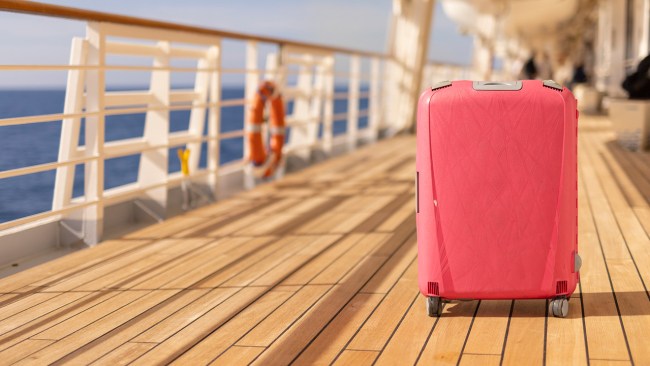
We’ve been on 28 cruises, this is what we always pack

I broke an etiquette rule at the airport, and I’ll never go back
On one of my earliest trips to Europe, I broke up the grinding tedium of the hemisphere-to-hemisphere long-haul with a four-day stopover in Hong Kong. The vibrancy of the old town, the tram up to the Peak, a junk ride on the harbour – all were most welcome fresh-air, leg- stretching alternatives to sitting cramped in a metal tube non-stop. It took far longer to reach my destination, sure, but I got to see a city that I may never have otherwise explored.
While Australians are often in a huge hurry to arrive at our end goal when we travel – after all, we tend to be a very long way from anywhere so get us there already – there can be serious benefits to stretching your layover into a multi-day stopover, not least of all the possible savings.
“Generally speaking, if you’re opting for a direct route with minimal layover time, you’re likely to be paying a premium for the convenience,” Expedia brands managing director Daniel Finch says. “A potential benefit of a layover is the option to mix and match your flights – in other words, booking separate tickets with different airlines, as opposed to one end-to-end journey.”

That said, sticking with one airline all the way through – but adding a stopover – may also have cost benefits, especially if they have a program designed to lure flyers into a short stay at the airline’s country of origin.
“Many airlines have dedicated stopover programs that provide discount hotel room rates and options for saving on everything from restaurants to museum and gallery entry fees,” says Chris Zeiher from Lonely Planet , noting Qatar Airways’ tempting offer as one of the best value stopover programs around.
Ready to drop a stop into your next adventure? These are some of our favourites.
Best stopovers between Australia and Europe

What to do: This tiny island packs a massive flavour punch; good food is practically a religion in Singapore. Even if you have only a few days on the ground a visit to the hawker markets is an absolute must. Explore the glamorous end of the scale as well: restaurants such as Fiz or bars like No Sleep Club are world class. Kids will get in plenty of leg stretching on the sunken trampolines and obstacle courses at the magical Jurong Lake Gardens.
Stay at: The Dusit Thani Laguna Singapore which has its own golf course, rooms that look directly on to jungle-y greenery and offers a complimentary shuttle from Changi airport.
Tip: Singapore is tropical all year round so remember to throw in the shorts and sandals, especially if your final destination is chilly.
How to do it: Many airlines fly to the island nation including Singapore Airways .

What to do: The most populous city in the UAE is like a microcosm of the whole world but juiced up. Go big or go hard with shopping and eats (desserts at Parkers – do it) at the Mall of the Emirates and lock in a desert dinner safari.
Stay at: The Kempinski Hotel Mall of the Emirates to be in the centre of the action.
Tip: The Emirates website has a tool that allows you to customise your perfect Dubai short stay itinerary including discounted tours, simple restaurant bookings and 24-hour hotel check-ins.
How to do it: Several airlines take you to Dubai but the home team is Emirates .

What to do: Check out some contemporary art at the M+ museum or hit the harbour on a traditional junk boat tea cruise, such as with Aqua Luna .
Stay at: The newly renovated Regent Hong Kong has some of the best views of the bustling harbour to be found anywhere in the city.
Tip: As with all stopovers, remember to throw in the correct power plug, not just the one you’ll need at your final destination.
How to do it: Cathay Pacific is Hong Kong’s national carrier and often has the best value flights to the island.
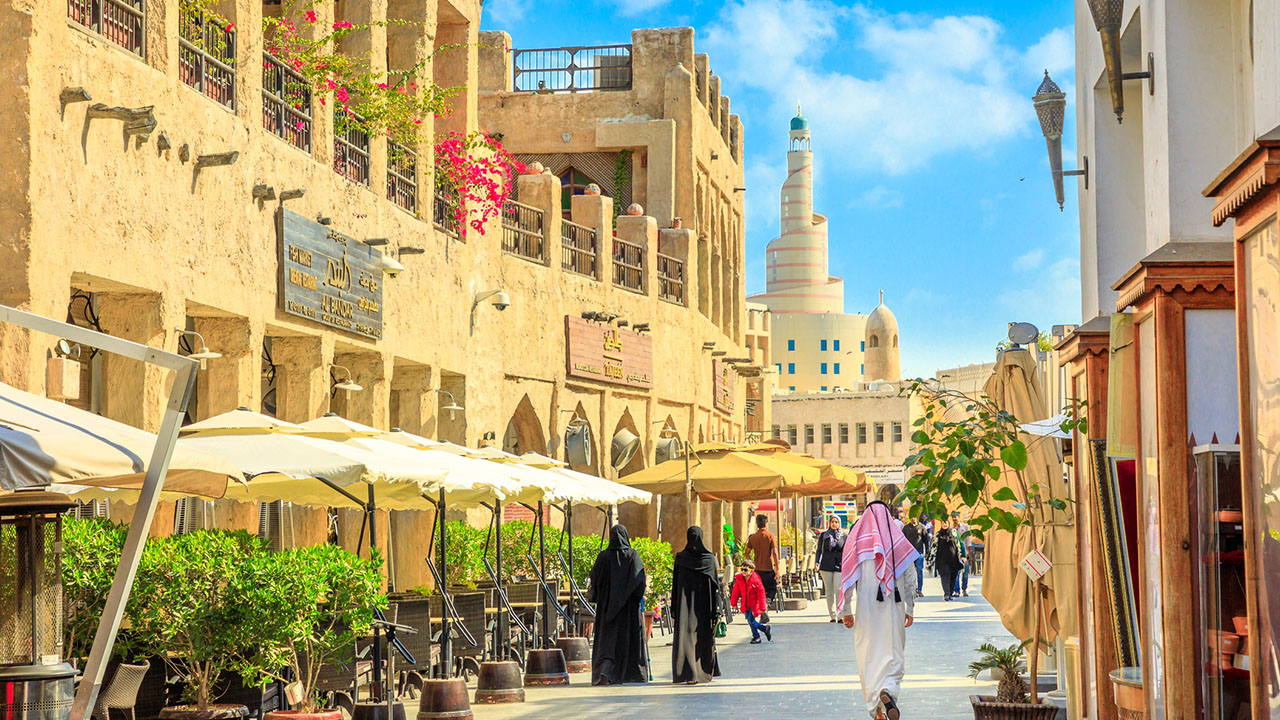
Doha, Qatar
What to do: The Souq Waqif is the place to hang out after dark to geta sense of a bustling – if modern – Qatari market complete with falcons and gold. If the kids need to run off some steam after the long flight, Angry Birds World theme park at Doha Festival City Mall will provide hours of play time.
Stay at: The Al Najada Hotel . It’s located walking distance from all the souks and blends modernity with charming Arabian elegance.
Tip: Qatar Airways believes it has the best value stopover package anywhere on Earth – offering hotel stays from a meagre $US14 a night.
How to do it: Qatar Airways gives you the best on-ground perks; all the better to splurge on its amazing business class.
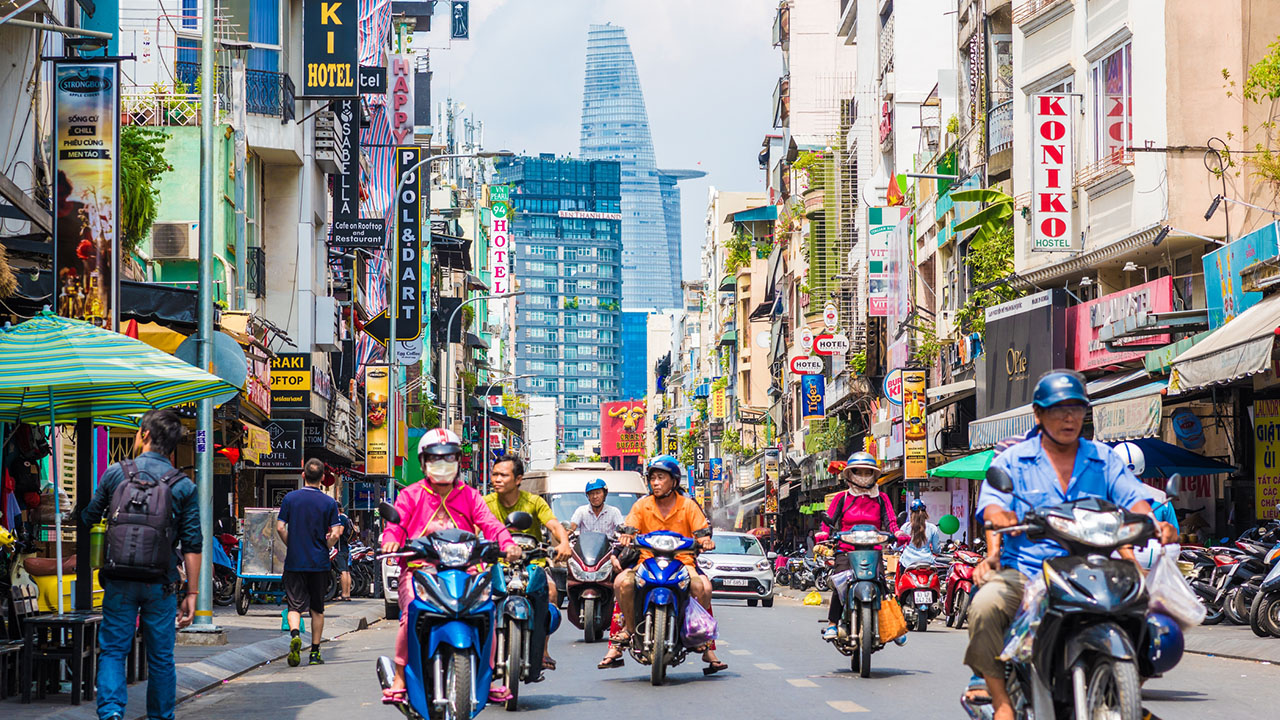
Ho Chi Minh City, Vietnam
What to do: Banh mi, beer and Vietnamese coffee, of course. But sobering history is also a huge part of this city’s DNA. The War Remnants Museum and Cu Chi Tunnels are moving reminders of a cruel and important conflict that affected millions.
Stay at: The Vinpearl Landmark 81 . It’s in the city’s tallest building and the views over the cityscape are out of this world.
Tip: Don’t forget Australians must have a visa to enter Vietnam, even for a short stay. It’s easy to apply online.
How to do it: Bring on the fun budget airlines for this one: VietJet , Jetstar , Bamboo Airways , Scoot and Vietnam Airlines all fly direct to Ho Chi Minh City from various cities in Australia. You might mix and match your ongoing flight from there.
Best stopovers between Australia and the USA

Santiago, Chile
What to do: Stretch those cramped limbs with a walk to the top of Santa Lucia Hill to check out the historic Neptune Fountain and Castillo Hidalgo. Then snack up hard on ceviche – this is a fishing city after all – and pisco sours at Santiago’s Central Market.
Stay at: The fire-engine red Hotel Boutique Castillo Rojo in the pretty Barrio Bellavista district.
Tip: It definitely takes longer to reach the US if you head in this direction but the rewards of checking out this underrated South American city are worth it.
How to do it: Latam Airlines .

Vancouver, Canada
What to do: Shake off the jet lag by wandering through the ancient forests and ocean vistas of Stanley Park. Hungry? Vancouver has some of the best Cantonese food available anywhere outside of Hong Kong or Guangzhou – head to the Richmond area or to the retro-cool Chinatown BBQ in Chinatown to get in some heavy snacking.
Stay at: The Fairmont Pacific Rim to be right in the centre of everything.
Tip: While it might seem like an overshoot geographically, there’s a good reason to stop in Canada before heading to the US: Australians can clear US customs in Vancouver. That’s great news for anyone who dreads the cursed queues at LAX. Then it’s an easy flight to a huge range of cities within the Lower 48 states.
How to do it: Air Canada and Qantas both fly direct to Vancouver.
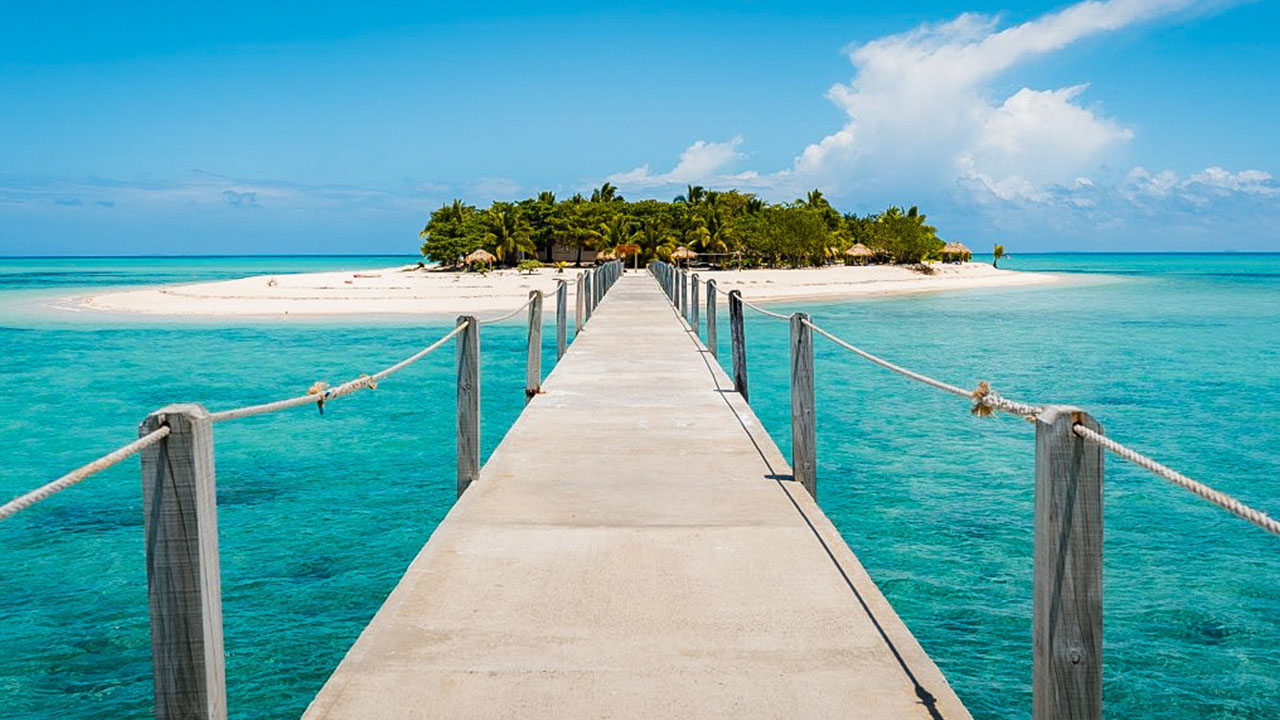
What to do: There’s plenty to do in the gateway to Fiji if you’re only staying for a few days. Captain Cook Cruises has a new half-day private island tour complete with beachfront Champagne, or book in a round of golf at the Denarau Golf & Racquet Club .
Stay at: The Sheraton Fiji Golf & Beach Resort which is right next door to the golf course.
Tip: Fiji Airways flies from Australia to both Los Angeles and San Francisco after its Nadi stopover. Canberra resident? It’s the only international airline that flies from your city so you can skip the stop in Sydney.
How to do it: Fiji Airways .

Honolulu, Hawaii
What to do: If you’re heading to the US mainland, Hawaii pretty well sells itself. Head to Honolulu’s Kaka’ako district for street art and boutique shopping, or book an outrigger canoe lesson with Waikiki Beach Services .
Stay at: The Wayfinder Waikiki is bustling, boutique and cool.
Tip: While most Australians enter the US mainland from the west coast, a Honolulu stopover makes the rest of the country far more accessible: you can fly from Honolulu directly to New York or Boston on the east coast, for example.
How to do it: Hawaiian Airlines .

Auckland, New Zealand
What to do: If you’re heading to New York, consider a pit stop in this big-hitter city. It’s full of quirk and curios such as night markets and the ice-cool Kiwi fashion on Ponsonby Road. Cazador restaurant is a little out of the way but worth the Uber trip for its genius handling of New Zealand wild foods, or take the ferry to Waiheke Island for lunch at a winery.
More Coverage

Stay at: Voco Auckland City Centre for Bar Albert, with panoramic views across the harbour and Waitakere Ranges.
Tip: Remember that New Zealand’s quarantine laws are possibly even stricter than Australia’s so be careful what you’re taking in.
How to do it: Qantas ’ brand new Sydney-New York route stops in Auckland, giving you the perfect reason to explore this cool Kiwi city.
Alexandra Carlton has been a journalist for almost 20 years, beginning her career as a news reporter for Who Weekly and going on to feature writing and editing roles at Madison, Marie Claire, Grazia and Kidspot. She has a bachelor’s degree in journalism from Charles Sturt University and has been shortlisted for Feature Writer of The Year at the Australian Magazine Awards and the ACP Awards. She currently contributes across dozens of Australian print and online publications, writing across everything from news and current affairs, to travel and food to parenting and lifestyle. She lives in Sydney with her husband, son, and two slightly unhinged dogs.
Taking her family on the trip of a lifetime - while on a strict budget - this traveller discovered that the most authentic experiences aren't always the ones you can buy.
Having notched up 28 cruises - including a dream round-the-world adventure visiting 40 destinations over 110 days - this cruise-loving couple have nailed what to pack for a holiday at sea.
I road-tested the ‘controversial’ cult travel shoe on a recent flight to Seoul, to see what all the fuss is about.
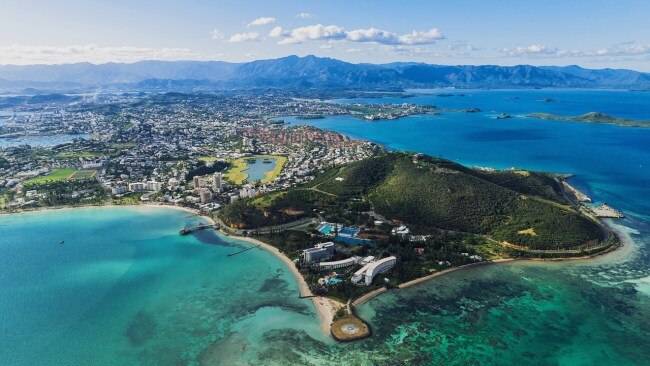
Can I get a refund on a cruise to New Caledonia?
If your cruise itinerary changes, is it possible to get a refund?
Europe summer heatwave predicted for 2024: Advice for travellers

Sarah Pollok
Share this article
Europe could see even higher summer temperatures than 2023, when heat waves damaged infrastructure and people. Photo / 123rf
Every year, Kiwis travel en masse to Europe in search of warmer weather during the cold New Zealand summer. In 2023, they got more than they bargained for .
Alongside photos of travellers sipping Aperol Spritz’s in Italy or tanning on beaches in Majorca, we saw pictures of people upending water bottles onto red faces, wilting on sidewalks and crowding around fountains.
According to meteorologists, this year will be no different.
In 2023, severe heat waves hit southern Europe, driving temperatures up to a sweltering 40C. Railway lines buckled, wildfires tore across cities and countries such as Italy, Spain and Greece were evacuated.
This wasn’t a one-off event either, Europe has been named the fastest-warming continent and of the 30 most intense heatwaves to hit the continent since the 1950s, 23 have occurred since 2000.
More are expected to hit this summer according to experts at US-based climate intelligence firm, Atmospheric G2.
“Our computer models are in good agreement that it’s going to be another unusually hot summer, especially during late July through August,” Vice President of Meteorology Todd Crawford told The New York Times.
Atmospheric G2 believed the summer could be similar to 2022, which was Europe’s hottest on record and mainly felt in southern countries such as Greece, Croatia and Italy.
The damage and health risks caused by heatwaves in 2023 and 2022 were not confined to locals; many travellers had holidays ruined or cut short as a result.
Blistering heat, combined with the crowds that come with peak summer have prompted some Kiwis to alter their travel plans .
In January, travel news site and market research company Skift said a boom in shoulder season travel would be one of the next major travel trends. Global tour operators such as Intrepid Travel and TUI have already begun extending their tour seasons and adding cooler destinations to itineraries.
However, it may be a while before the heat can convince all Kiwis to forgo iconic spots like Greece or Italy or pull their kids out of school to visit outside of the July school holidays.
How to beat the heat in Europe this summer
For those travelling to Europe this summer, there are some things you can do to beat the heat.
Change your destination
If there’s still time to change your plans, consider heading somewhere cooler (and cooler!) like Norway, Slovenia, Switzerland or Sweden. Finland also has much milder climates and who knows, you could learn a thing or two about happiness from the joyful denizens.
Check with your guide
If you’ve booked with a tour company or organised guide, now is a good time to contact them and check whether they have factored in the heat and have contingency plans if the weather takes a severely hot turn. Some tour companies have adjusted itineraries and shuffled activities to the early morning and evening rather than walking around in the heat of the day.
Keep an eye on the weather
This age-old advice is always helpful for travel but especially so when there’s a risk of heatwaves. Besides having a good old-fashioned Google, travellers can also check Meteoalarm , which offers an overview of weather-related warnings across all of Europe.
Pack accordingly
If you’re moving around during the day, it is key to have light, breathable clothing that provides good coverage from the sun. Other backpack essentials include hats (the bigger the brim the better), one or two full water bottles and a small towel, which you can dunk into cold water at a pit stop and place over your face or neck to keep you cool.
Plan your days strategically
Try to schedule activities or tours, especially those you must walk to or during, for the early morning and early evening, when the heat isn’t as strong. Then, in the afternoons you can schedule indoor activities such as walking around an air-conditioned gallery or chilling at the hotel. Travellers can also download the Extrema Global app, which calculates walking routes with the most shade and identifies the nearest places with AC, fountains, parks and free drinking water.
Prepare your hotel room
If there’s ever a time to prioritise a room or hotel with air conditioning, summer in Europe is it. Additionally, close the windows and shades of your room when you’re out exploring, to help keep the room cold.

Latest from Travel

Celebrate the finer things in life with a good book and a Cunard cruise
Join a ship full of like-minded literature enthusiasts this December.

Why your next holiday could be the end of your relationship

9 adrenaline-fuelled adventures in NZ (that don't involve bungy jumping)

Ditch the back-to-back flights to Europe: save your sanity and stop in Doha

Time to get away?
- How to Tie a Tie
- Best Coffee Beans
- How to Shape a Beard
- Best Sweaters for Men
- Most Expensive Cognac
- Monos vs Away Luggage
- Best Luxury Hotel Chains
- Fastest Cars in the World
- Ernest Hemingway Books
- What Does CBD Feel Like?
- Canada Goose Alternatives
- Fastest Motorcycles in the World
Don’t commit a faux pas: Your guide to tipping around the world
Should you tip when you travel.

It’s your first time visiting Italy’s Amalfi Coast . After enjoying Pizza Napoletana as the sun sets over the Mediterranean, you go over the check. Fine foods bring a commensurate price, especially in a cultural epicenter like Italy. So the cost isn’t an issue. But how much should you tip?
How to tip no matter where you travel
Additional advice for tipping across the globe.
Tipping culture varies across the globe and for good reason. In some countries, there’s an expectation of 15% or more. But in others, things get a little murky. Not only that, but should tipping exist at all?
On one hand, you want to reward waitstaff for a job well done. On the other hand, shouldn’t business owners be responsible for paying employees? While there are arguments for and against, tipping etiquette is a reality wherever you travel.
- The best places to visit in the south of France: These charming spots are must-see
- This is the best time to visit Switzerland
- Sleep tourism is really a thing, and these are the best places for it
To help you navigate how to tip when abroad, travel expert Justin Chapman from Go2Africa put together a useful guide. Here’s what he has to say.
With summer approaching, Google searches for “tipping abroad” are up by 166%. With all the confusion surrounding the issue, it’s good to know before you go. That way, you can enjoy feijoada stew in Brazil or fish and chips in England and not worry about leaving enough gratuity. Here’s how to tip in each corner of the globe.
North America and Canada
Here, servers and staff rely on tips as a significant part of their wages. When dining, a 15-20% tip is the expectation, and in bars, $1 per drink is the norm. When buying a coffee, leave your change or round up to the nearest dollar.
If you’re taking a taxi, rounding up or leaving 10-15% is customary. When you arrive at your hotel, bellhops get $2-$5 per bag, housekeepers $2-$5 per night, and concierges $5-$20 (depending on the service).
Central and South America
South American servers aren’t as beholden to tips for their wages, but even then, leaving 10-15% is typical. If you’re traveling to Costa Rica, Brazil, or Chile, pay attention to the “cubierto” — or cover charge — on the check. That’s a fee for the table, not gratuity for the waitstaff.
When using a tour guide, it’s common to tip $5-10 each day, but in Columbia, a little higher at $15-20. However, in Brazil, tourism pros depend on large tips, with a range of R$100-200 (about $20-40 USD). But when taking a taxi, drivers don’t expect much, so just round up to the nearest dollar.
Tipping in Europe varies from country to country. Restaurants in Germany, Spain, Italy, and France usually charge a service fee, or “coperto”. But if they don’t, expect to pay a 10-15% tip. However, tipping isn’t the norm in Belgium, the Netherlands, Finland, and Denmark, though you can always round up to the nearest Euro to show gratitude.
When you need a ride, tipping etiquette is the same across Europe, with a small tip of 1 Euro the custom. That’s also true when buying a coffee or a beer.
Like Europe, Asia’s tipping etiquette covers a wide range. When you eat in Japan, tipping is considered part of the service and may be deemed offensive. Similarly, in China, tips aren’t customary and could be seen as rude. South Korea follows suit, with tips not expected.
On the other hand, in Southeast Asia, tipping is increasingly common in tourist destinations. In Thailand and Vietnam, a 10% tip is appreciated but not required. In Indonesia, if there’s no service charge, 5-10% gratuity is a nice gesture.
Across Asia, if you’re taking a taxi, grabbing a coffee, or enjoying a beer, tipping isn’t common. When you’re unsure, it can be better not to tip, lest you offend someone.
Australia and New Zealand
Down under, Australia and New Zealand help save you money on your getaway. With tips not expected, you can focus on your meal and save precious dollars on an expensive trip. However, sometimes fancy restaurants in tourist locations might include a service charge. When you receive exemplary service, leaving 5-10% gratuity to reward waitstaff or at least round up to the nearest AUD is nice. That’s also true for hotels, bars, and taxis.
When it comes to tipping, Africa is middle of the road. In restaurants, 10-15% is common. But things get a little more nuanced when adding safaris to the equation.
After you decide the best time to visit Africa and venture out on safari, you’ll want to know how to compensate your guides. After all, these are incredible experiences, where you see majestic animals in pristine habitats — like zebras along the plains — something few people get to do. You’ll want to tip a number of staff, including guards, cooks, and cleaners, along with guides, spotters or trackers, servers, and transfer drivers. You can do that in several ways. Some lodges have a communal tip box, or you can leave money with the manager, who divides the amount evenly among workers. You can also give cash directly to staff.
Typical amounts per day are $20 for guides, $15 for trackers, $10-20 for general staff at a lodge, and $10-20 for a guided city tour. Also, depending on where you travel, extras can add up, like golf caddies in South Africa or boat skippers in Mozambique.
Now you know tipping customs for wherever you go. But additional considerations can also smooth out a sometimes awkward process. Here are some pointers.
- Cash is the best way to tip, with a straightforward payment direct to the source. To ensure you have plenty on hand, obtain some local currency when you arrive.
- Asking locals for advice can better inform you of what’s expected, so you’re a polite guest in your new surroundings. You can ask hotel staff or locals in a restaurant so you don’t ruffle any feathers when it’s time to pay.
- In locales with a higher cost of living, bigger tips are the expectation. That’s typically the case in tourist areas, where tips help servers get by.
- Lastly, watch people’s body language and try to read the situation. In some places, saying thank you is enough, and a tip might be considered impolite.
Tipping culture is a hotly debated topic, with some for and some against paying gratuity. That’s understandable. Through all of it, servers and staff are caught in the middle. In any case, with the preceding info, you’ll know the customs for tipping no matter where you go and can rest assured you’re doing the right thing. So get out your map, plan that trip, and travel without worry.
Editors' Recommendations
- These are the 10 best things to do in San Diego, according to a local
- Get the best deal without the hassle: The best sites to book flights
- 4 reasons why Seattle is Kayak’s No. 1 summer travel destination
- This is the best time to visit Thailand
- iPhone photography tips: How to take better travel photos on your phone
- Advice and how-tos
- Advice and insights

American Express and Delta have joined forces once again to redefine luxury in the world of travel rewards. The iconic Delta SkyMiles Reserve American Express Card and Delta SkyMiles Reserve Business American Express Card are making a triumphant return, sporting a new stunning feature– cards made from repurposed airplane metal.
In a bold move that seamlessly merges innovation with sustainability, the Delta SkyMiles Reserve Card is not only a tool for accruing miles but also a beautiful piece of craftsmanship. Let’s dive into the allure of this new credit card, exploring all of the benefits it has to offer. The Delta SkyMiles Reserve Card: the details
Global Entry is an expedited screening program run by U.S. Customs and Border Protection that allows pre-approved, low-risk travelers to breeze through immigration and customs checkpoints when entering the United States. The program saves time and hassle by letting members use automated kiosks rather than standing in regular passport control lines.
If you're already enrolled in Global Entry, you know what a convenience it is -- but a Global Entry membership is only valid for five years before it needs to be renewed. Here's how to renew your membership and ensure uninterrupted access to those coveted kiosks. When to renew Global Entry
- Food & Drink
Writers and bars have a special connection. These haunts are where ideas are forged, new characters are developed, and--in some cases--where the next great American novel is created.
Within these hallowed walls, you can feel the buzz of creative energy. Sure, Hemingway and Hunter S. Thompson may be gone, but their spirit remains, permeating these watering holes with an atmosphere you just don't get anywhere else.
- Travel Advice
World’s best airline for 2024 revealed
The wait is over – the winner of the world’s best airline for 2024 has been revealed, with two Aussie carriers scraping into the top ten.

Emirates’ premium economy is best in world
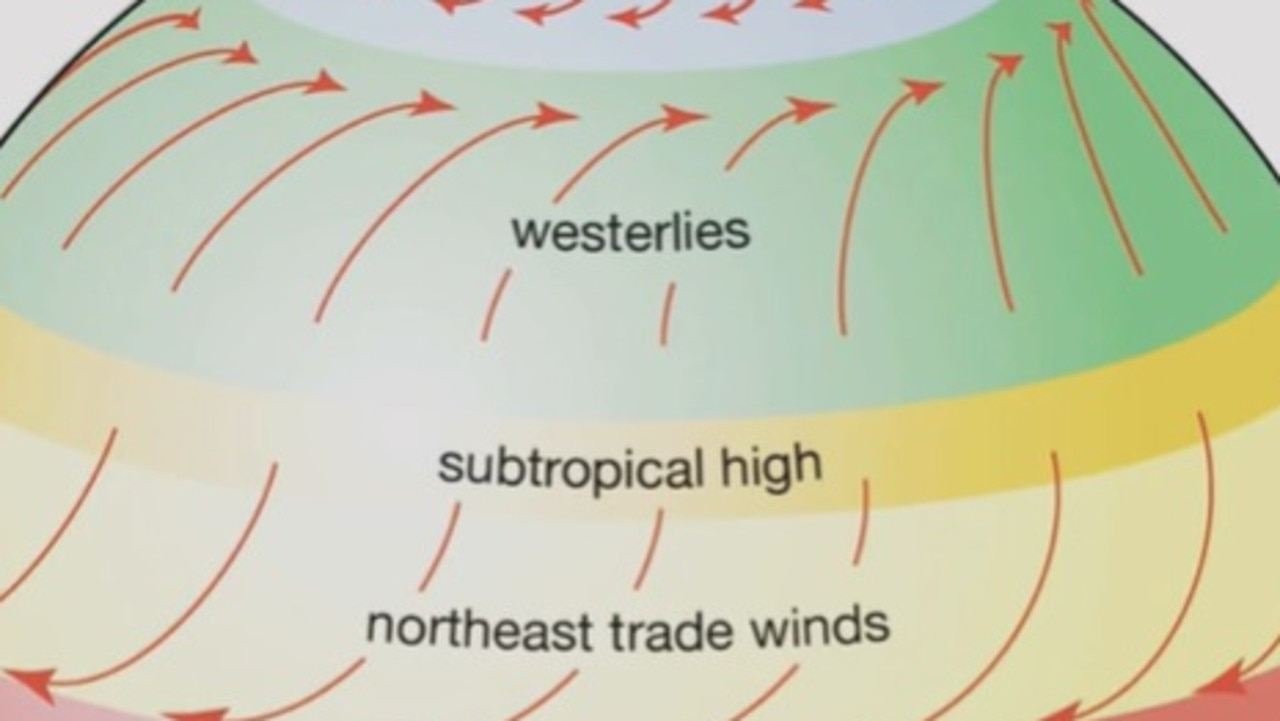
Horror Singapore flight didn’t ‘suddenly’ drop

Shock US city Aussies visit and never return
Qatar Airways is the world’s best airline, according to AirlineRatings.com.
The Doha-based carrier nabbed the prestigious Airline of the Year title for 2024, having nudged out last year’s winner, Air New Zealand, for the top spot.
Qantas and Virgin Australia/Atlantic came 9th and 10th, respectively.
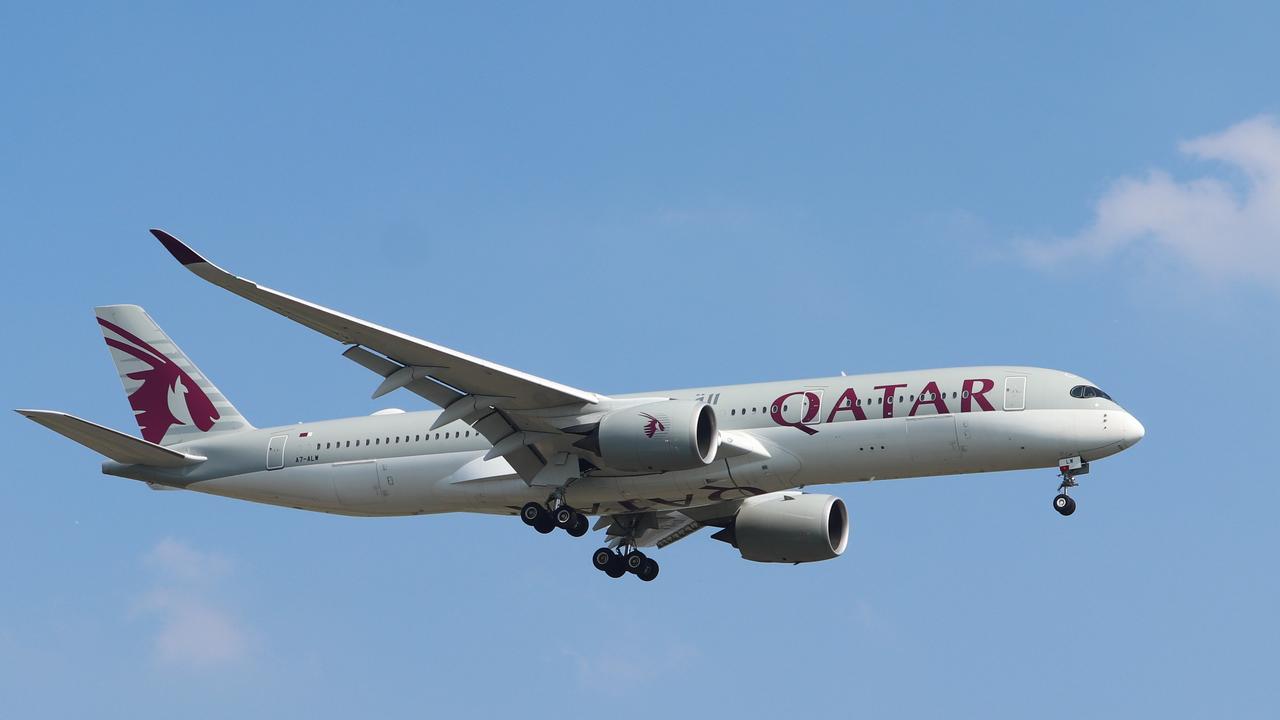
The judging panel, which consists of five editors, consider a range of criteria that include safety and product rating, fleet age, profitability, serious incidents, passenger reviews from several sources, innovation and forward fleet orders.
Between the judges there’s more than 100 years of industry experience.
“In our objective analysis Qatar Airways came out number one in many key areas although it was a very close scoring for the top 10,” AirlineRatings.com editor-in-chief Geoffrey Thomas said in a statement.
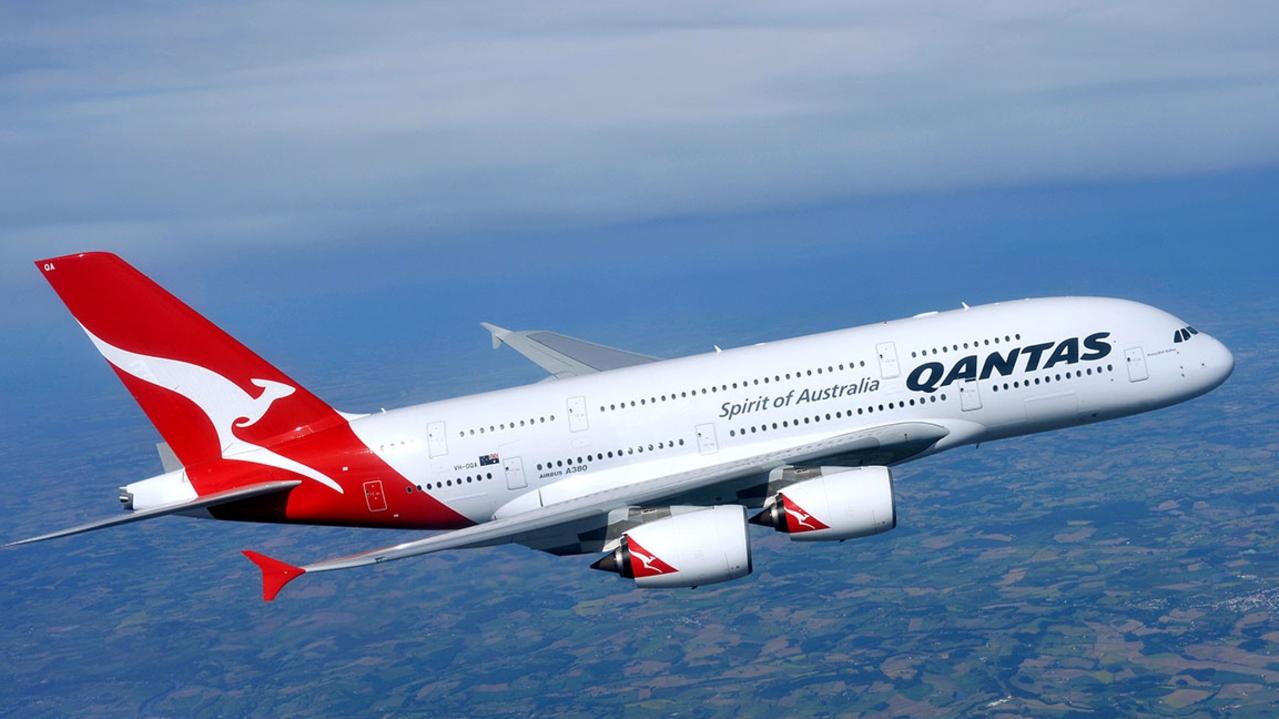
“The passenger reviews however scored Qatar Airways ahead of all airlines and its consistency and high standard of service delivery came through in the feedback.”
Coming in second on the Top 25 list is Korean Air followed by Cathay Pacific Airways.
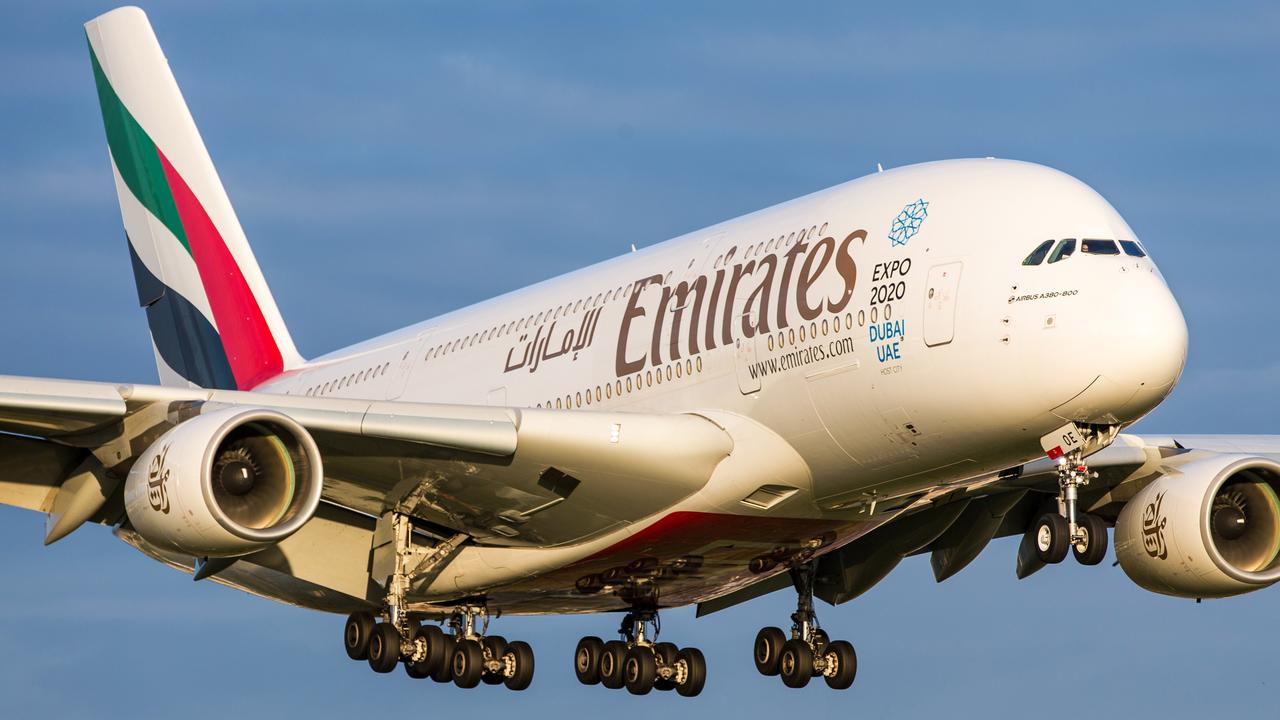
Air New Zealand fell back to spot four while Emirates secured fifth place followed by Air France/ KLM, All Nippon Airways and Etihad Airways.
In 2023, both Qantas and Virgin Australia secured sixth and seventh spot, but this year they fell back to ninth and 10th spot respectively.
Meanwhile, Qatar Airways also picked up Best Business Class for the fifth year running and Best Catering and Air New Zealand won Best Economy Class .
Singapore Airlines won Best First Class , while Virgin Australia won Best Cabin Crew .
Best-in-Flight Entertainment and Best Premium Economy went to Emirates .

It is the ninth year that Emirates has won the entertainment awards. It was one of the first to introduce seat-back videos for economy passengers back in the early 1990s.
According to Airlineratings.com.au it has led the field ever since and today the system has 6,500 channels “making it a clear winner for Best Inflight Entertainment”.
More Coverage

Qantas picked up Best Lounges, while Etihad Airways picked up Best Environmental Airline for the third year running.
Qatar Airlines’ success comes as the group reported a strong financial performance for the first half of 2023/2024.
It reported a net profit of QAR 3.736 billion ($A1.537 billion) which represents an increase of 113.8 per cent compared to the same period last year 2022/2023. The Group’s total revenue for first half of fiscal year 2023/2024 increased to QAR 40.126 billion ($A16 billion)), up 7.4 per cent compared to the same period last year 2022/2023.
The Dubai-based airline ranked fifth as the best airline in the world – but it came first in one category – and it’s easy to see why.
A Sydney pilot has revealed the area with the worst turbulence in the world in a clip that has gone viral with two million likes.
It’s considered the home of country and the place where Taylor Swift started her career - but there’s so much more to this US city. Here’s why Aussies can’t get enough of it.

Search Smartraveller
Destinations.
UK Edition Change
- UK Politics
- News Videos
- Paris 2024 Olympics
- Rugby Union
- Sport Videos
- John Rentoul
- Mary Dejevsky
- Andrew Grice
- Sean O’Grady
- Photography
- Theatre & Dance
- Culture Videos
- Fitness & Wellbeing
- Food & Drink
- Health & Families
- Royal Family
- Electric Vehicles
- Car Insurance Deals
- Lifestyle Videos
- UK Hotel Reviews
- News & Advice
- Simon Calder
- Australia & New Zealand
- South America
- C. America & Caribbean
- Middle East
- Politics Explained
- News Analysis
- Today’s Edition
- Home & Garden
- Broadband deals
- Fashion & Beauty
- Travel & Outdoors
- Sports & Fitness
- Sustainable Living
- Climate Videos
- Solar Panels
- Behind The Headlines
- On The Ground
- Decomplicated
- You Ask The Questions
- Binge Watch
- Travel Smart
- Watch on your TV
- Crosswords & Puzzles
- Most Commented
- Newsletters
- Ask Me Anything
- Virtual Events
- Betting Sites
- Online Casinos
- Wine Offers
Thank you for registering
Please refresh the page or navigate to another page on the site to be automatically logged in Please refresh your browser to be logged in
World’s best budget airlines 2024 revealed – with UK operator named best in Europe
Airasia, southwest airlines and flydubai ranked among the top 25 low-cost operators, article bookmarked.
Find your bookmarks in your Independent Premium section, under my profile
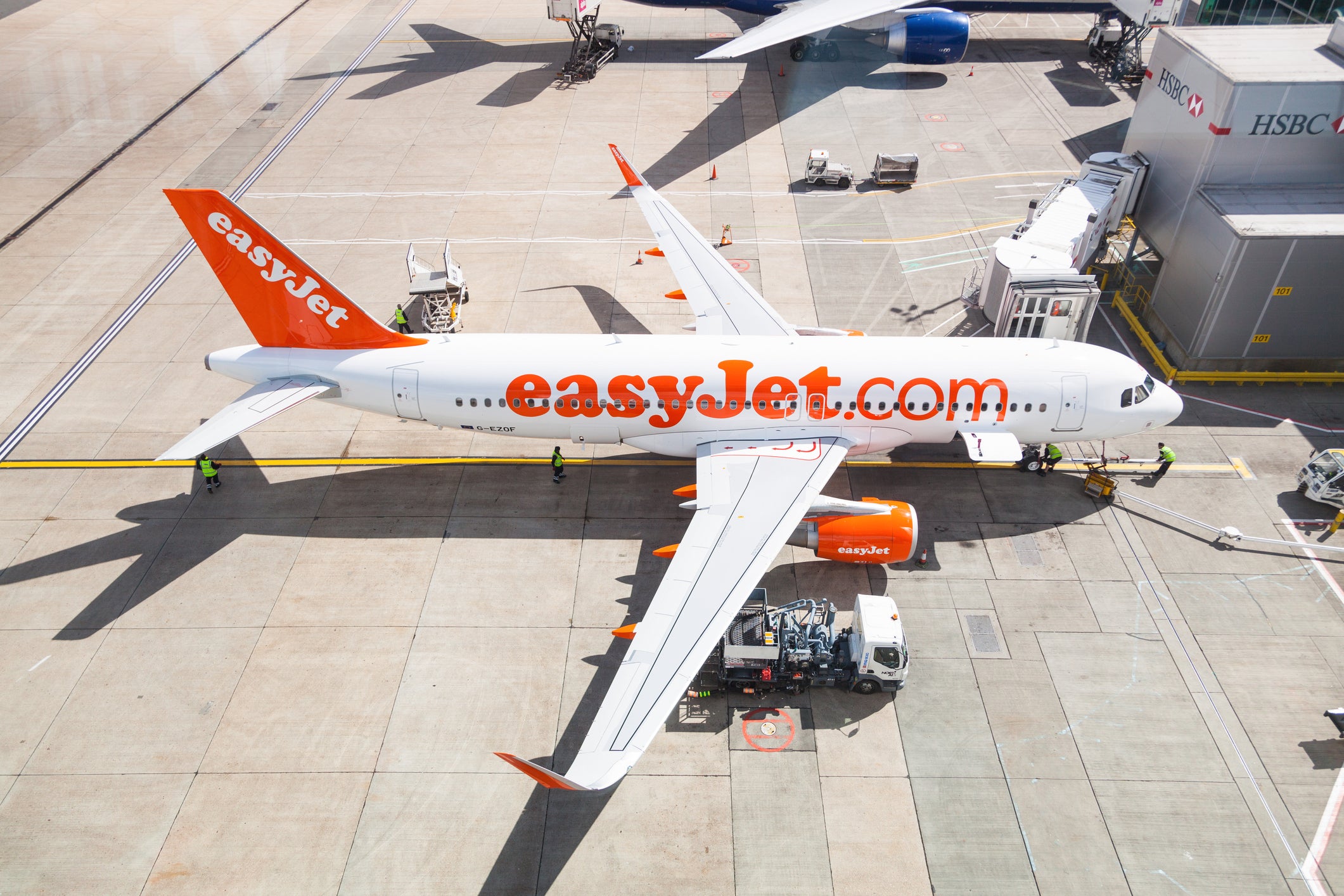
Sign up to Simon Calder’s free travel email for expert advice and money-saving discounts
Get simon calder’s travel email, thanks for signing up to the simon calder’s travel email.
The world’s best budget airlines to cut costs without compromising on hospitality have been revealed – and easyJet topped the list for Europe .
A new ranking by AirlineRatings.com , an aviation safety and product website, ranked the top 25 low-cost airlines for 2024 as part of its annual Airline Excellence Awards.
The budget airlines were evaluated by a team of aviation experts based on 12 criteria including passenger reviews, fleet age, profitability, product offerings and safety and incident ratings out of seven stars.
Featured in the top 25, Vueling, Jetblue, Air Canada Rouge and Cebu Pacific impressed based on passenger feedback and safety audits from aviation governing bodies.
Vietnamese airline Vietjet was individually awarded the overall title of the best ultra-low-cost airline with the best quality onboard hospitality.
As for the regional winners, in Europe , easyJet took the top spot for the best low-cost airline.
The highest-ranking European airline was joined by fellow UK operato Jet2 .
In February, Jet2 was also ranked among the world’s best airlines by consumer champion Which? in a UK passenger satisfaction survey.
The airline received a score of 81 per cent for “excelling” in reliability and customer support.
Southwest was considered by AirlineRatings.com to be the best budget carrier in the Americas, FlyDubai for the Middle East, AirAsia for Asia and the Jetstar Group for Australia and the Pacific.
Bo Lingam, CEO of the AirAsia Aviation Group said: “AirAsia continues to push the boundaries on what it means to be a low-cost carrier because low cost doesn’t mean low service for our airlines.
“As travel demand recovers to pre-pandemic levels, we have over 400 new specification aircraft on order to fuel our ambitious growth plans including flying to places we have never flown before, providing our guests with more value and choice, not only to and from Asia but across the world.”
AirlineRatings.com also judged the best-performing premium airlines of 2024. Korean Air, Cathay Pacific Airways, Air New Zealand and Emirates ranked in the top 10, with Qatar Airlines hailed as ‘airline of the year’.
“In our objective analysis, Qatar Airways came out number one in many key areas although it was a very close scoring for the top ten.
“The passenger reviews, however, scored Qatar Airways ahead of all airlines and its consistency and high standard of service delivery came through in the feedback,” said AirlineRatings.com editor-in-chief Geoffrey Thomas.
Top 25 low-cost airlines (in alphabetical order):
- AirAsia Group
- Air Canada Rouge
- Cebu Pacific
- Jetstar Group
Join our commenting forum
Join thought-provoking conversations, follow other Independent readers and see their replies
Subscribe to Independent Premium to bookmark this article
Want to bookmark your favourite articles and stories to read or reference later? Start your Independent Premium subscription today.
New to The Independent?
Or if you would prefer:
Want an ad-free experience?
Hi {{indy.fullName}}
- My Independent Premium
- Account details
- Help centre

IMAGES
COMMENTS
The Australian Government provides 24-hour consular emergency assistance. +61 2 6261 3305 from overseas. 1300 555 135 from within Australia. For how we can help you overseas see the Consular Services Charter.
Countries can change their border rules at short notice. Before you travel, ask your destination's nearest embassy or consulate for the latest rules. Visa waiver agreements with Australia. Australia has visa waiver agreements with several countries in the Schengen Area. These agreements may allow you to spend 60 to 90 days in the country for ...
Monday, 21/03/2022. We've had numerous queries regarding travel to Europe due to the crisis in Ukraine. There's not a 'one-size-fits-all' response to whether you should travel to Europe, or any international destination. It's your responsibility to remain informed about all the countries you're visiting.
1300 555 135 within Australia +61 2 6261 3305 from anywhere in the world. Read more about getting help overseas on Smartraveller. Travel advice. We maintain travel advisories on Smartraveller for over 175 destinations, assigning an overall advice level to each. The advice levels reflect the risks for Australian travellers in each destination.
9:10pm Jun 7, 2023. Australians looking to enter Europe from next year will need to apply for a new special permit to travel through 30 countries, as the European Union looks to beef up ...
Used judiciously, those visa waiver agreements give Australian passport holders the right to travel around Europe for a virtually unlimited period. Of course, this article should not be ...
The cost is €7 ($11.40) and applicants under 18 or over 70 pay nothing. Although it adds another hoop to jump through, ETIAS changes nothing for Australian travellers once you're actually ...
Smartraveller, the Australian government's travel advice service, states once the changes come into effect, Australians will need to apply through the ETIAS to enter 30 European countries. "The ETIAS is expected to start in mid-2025, but this will depend on the new entry/exit system being operational," Smartraveller says.
They add they have issued this advice for two principal reasons: Australians may be at higher risk of contracting COVID-19 - particularly during flights and in crowded airports. If illness strikes, health care in countries may not be at the level we enjoy back home. Secondly, there is always the chance that re-entry into Australia may not be ...
The travel advice is simple: don't procrastinate, book now. European summer holidays have never been more expensive for Australians than in 2023, with fares almost 50 per cent higher than the ...
Cost of an ETIAS Travel Authorisation. As of April 2024, the ETIAS application fee is €7. This is equal to roughly $11 Australian dollars with the current Euro to AUD conversion. However, it's ...
See the travel advice for details on how to register. Keep your registration details up to date so we can contact you. Australians needing emergency consular assistance should contact the Australian Government's 24-hour Consular Emergency Centre on +61 2 6261 3305 (from overseas) or 1300 555 135 (within Australia). Read more.
The key is to avoid the big, tourist-heavy cities - Paris, Venice, Florence, Munich, Amsterdam - and instead visit nearby centres that offer similar experiences for a fraction of the price ...
Australia may be a long way from Europe, but the continent offers Aussie travellers the opportunity to immerse themselves in unique cultures and breathtaking landscapes. To truly experience the best of what Europe has to offer, it's worth considering a multi-country trip rather than focusing on just one destination.
Travelling to Europe from Australia can be an exciting experience, with the opportunity to explore new cultures, visit historic landmarks, and indulge in delicious cuisine. However, it can also be a daunting task, as there are many factors to consider, such as flights, visas, accommodation, and transportation. In this
Northern and Central Europe Section. Director, Northern and Central Europe Section. Northern, Southern and Eastern Europe Branch. Department of Foreign Affairs and Trade. R G Casey Building. John McEwen Crescent. BARTON ACT 0221.
The Australian Immunisation Register (AIR) is a national register that records vaccines given to all people in Australia. The AIR includes vaccines given: privately, such as for flu or travel. You can check your immunisation record: by calling 1800 653 809 (Monday to Friday 8 am to 5 pm).
Smartraveller, the Australian Government's travel advisory and consular information service, which provides up-to-date advice about health, safety and other risks of specific destinations for Australian travellers; The following resources have comprehensive technical advice on international travel and health, including vaccination:
8. Stay Longer in One Place. Staying in one place longer can allow you to experience the city or neighborhood like a local. Making friends with locals, finding local restaurants restaurants and venturing off the beaten path, can make for exciting travel stories and often the most memorable experiences.
On one of my earliest trips to Europe, I broke up the grinding tedium of the hemisphere-to-hemisphere long-haul with a four-day stopover in Hong Kong. The vibrancy of the old town, the tram up to the Peak, a junk ride on the harbour - all were most welcome fresh-air, leg- stretching alternatives to sitting cramped in a metal tube non-stop. It took far longer to reach my destination, sure ...
If you plan to visit the UK for more than 6 months or for any purpose other than tourism, you should consult UK Home Office for the most up-to-date information. Entry and exit conditions can change at short notice. You should contact the nearest high commission or consulate of the United Kingdom for the latest details. Full travel advice: Travel.
In 2023, severe heat waves hit southern Europe, driving temperatures up to a sweltering 40C. Railway lines buckled, wildfires tore across cities and countries such as Italy, Spain and Greece were ...
However, in Brazil, tourism pros depend on large tips, with a range of R$100-200 (about $20-40 USD). But when taking a taxi, drivers don't expect much, so just round up to the nearest dollar. Europe
Strikes are frequent across France. When they occur, expect demonstrations and significant disruptions, which usually affect public transport and other public services. Some result in clashes with police, resulting in the use of tear gas and arrests. Avoid demonstrations and areas with significant police activity. Full travel advice: Safety.
Check official tourism websites for free activities. In Copenhagen, for example, Green Kayak allows you a free paddle as long as you collect litter along the way. The view from the tower at ...
Or witness the harbour transform into a dynamic canvas, as the historic Customs House and the Museum of Contemporary Art Australia's come alive. More Coverage Secluded Aussie beach makes world ...
Qantas and Virgin Australia/Atlantic came 9th and 10th, respectively. Qatar Airways named world's best airline for 2024. It also nabbed best business class. The judging panel, which consists of ...
The Australian Government provides 24-hour consular emergency assistance. +61 2 6261 3305 from overseas. 1300 555 135 from within Australia. For how we can help you overseas see the Consular Services Charter.
The world's best budget airlines to cut costs without compromising on hospitality have been revealed - and easyJet topped the list for Europe. A new ranking by AirlineRatings.com, an aviation ...